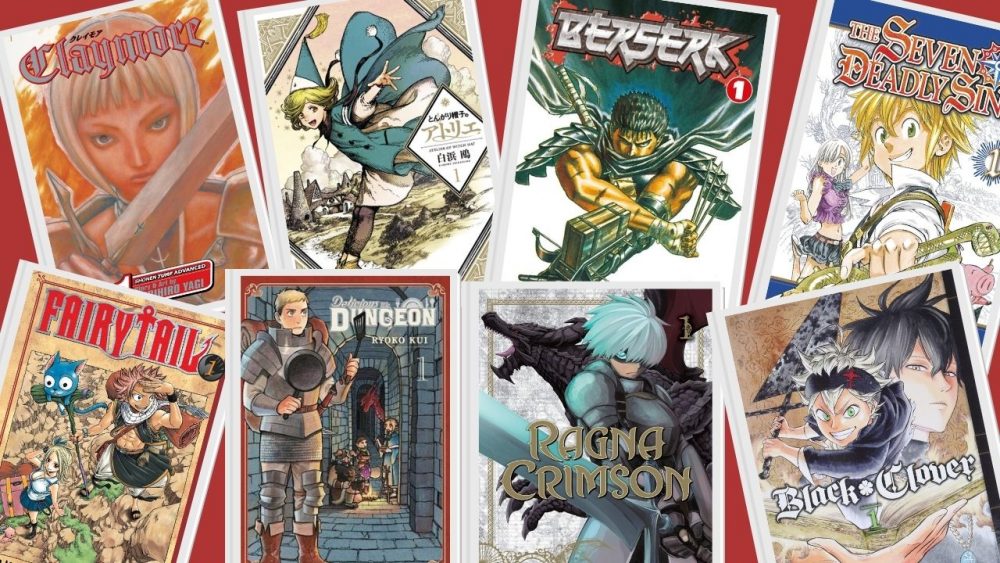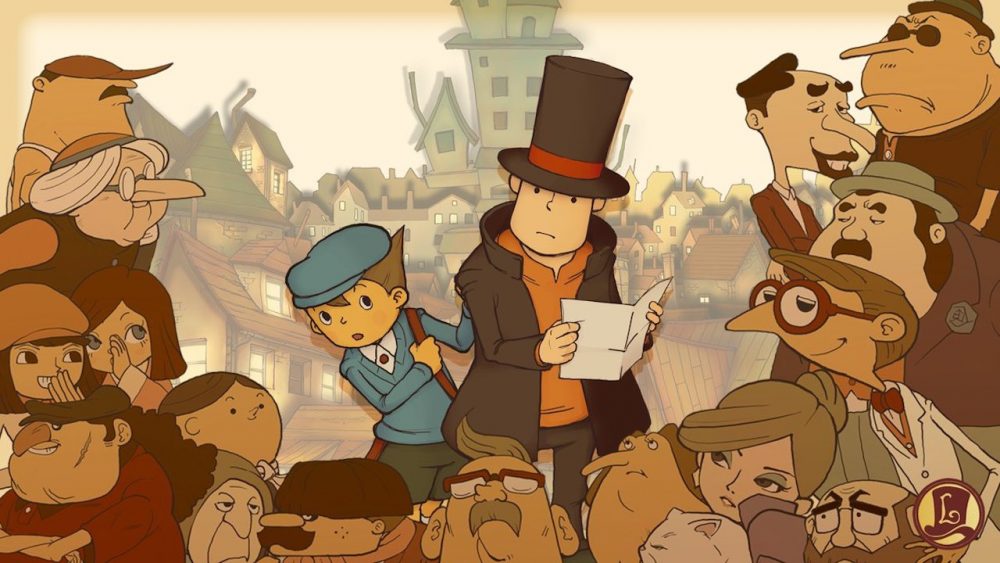The twentieth century saw the publication of many of the greatest works of literature ever written. All around the world, writers were inventing entire genres, pushing boundaries, blending fiction and philosophy, and so much more.
Many of the great novels that we call modern classic books today were written in the 20th century. And beyond that, into our 21st century, there have been many novels published that are already being considered modern classic books, and rightly so.
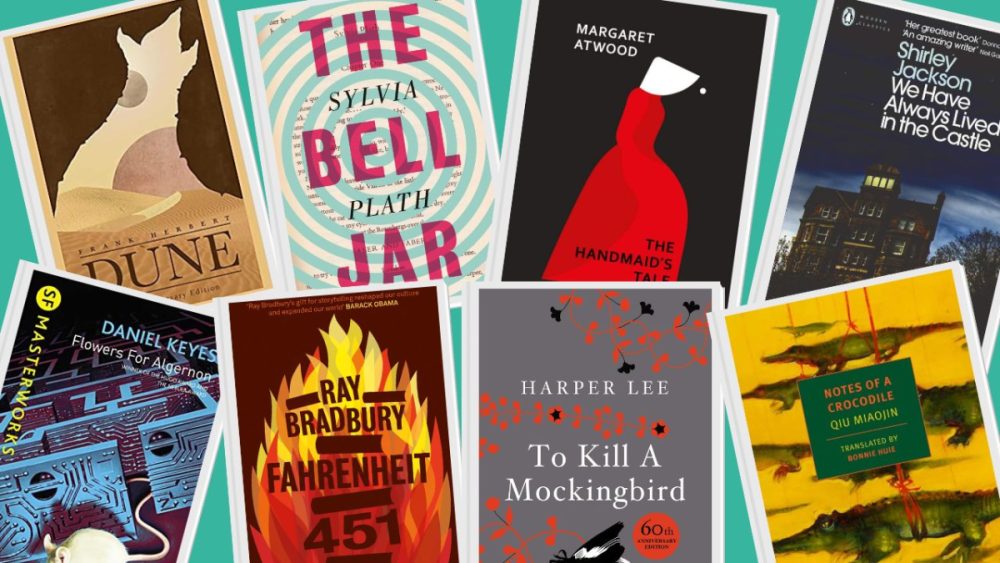
If you’re interested in the greatest classic books of old, from literature’s earliest beginnings in Greece and Japan to the classic novels of the 19th and early 20th centuries, you can find them right here. What you’ll find below are many of the best modern classic books, written between 1950 and today. And, since today is always moving forwards, expect this list to grow often. So, be sure to check back regularly!
While you’ll find many familiar and beloved classics from Europe and the US, you’ll also find many incredible works of 20th and 21st century Chinese, Japanese, and Korean fiction, as well as Latin American masterpieces. Here are the best modern classic books for you to read right now, from the second half of the 20th century to right now.
Note: This list has been divided into the best modern classic books of the 20th century’s second half, and the best modern classic books of the 21st century.
The Best Modern Classic Books (20th Century)
Published between 1950 and 1999, these modern classic books defined genres, created modernist writing styles, and popularised the concept of literary fiction. These are modern classic books that defined their time, reflected their politics, and have been inspiring readers and writers for decades.
The Handmaid’s Tale by Margaret Atwood
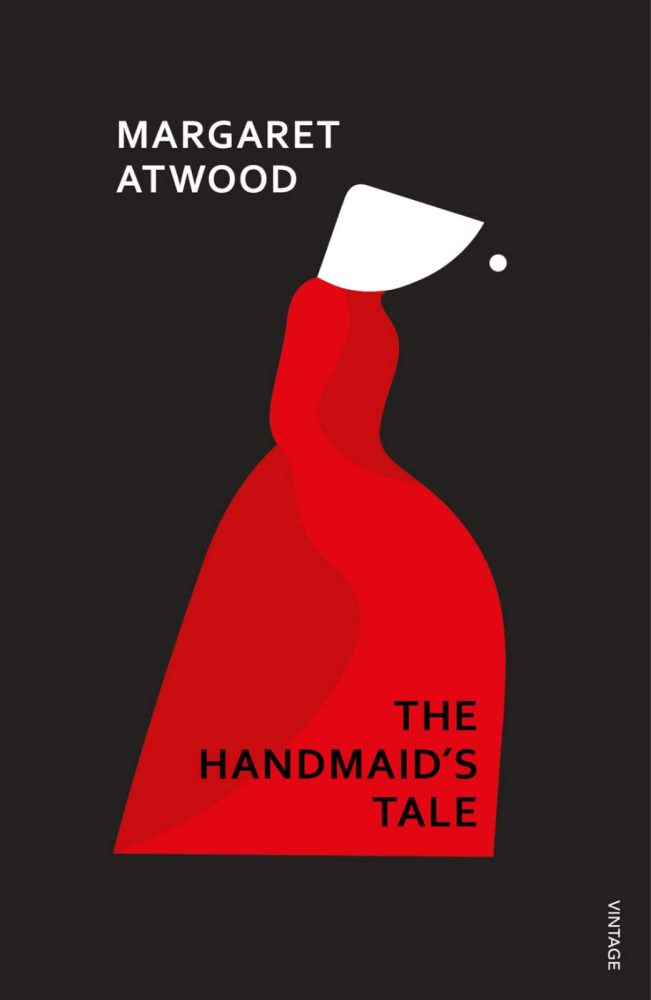
Much like with 1984 (above), here’s little left to say about The Handmaid’s Tale that hasn’t already been said. Published in 1985, The Handmaid’s Tale is a bleak look into the USA’s future; a time in which women have been reduced to nothing but their anatomy and reproductive abilities.
After fertility rates dropped to the point that they threatened human extinction, the US government decided to take the few men who were still fertile and give them power.
They then took fertile women and turned them into sex slaves living in the big houses now owned by the newly powerful fertile men and their faithful but infertile wives.
Now known as Gilead, the US is a military dictatorship controlled by traditional Biblical ideals which strip women of all rights and privileges.
It’s a bleak novel, but, like 1984, remains one of the most important and influential works of the 20th century, a landmark work of feminist fiction, and one of the very best modern classic books you’ll ever read.
Buy a copy of The Handmaid’s Tale here!
Red Sorghum by Mo Yan
Translated from the Chinese by Howard Goldblatt
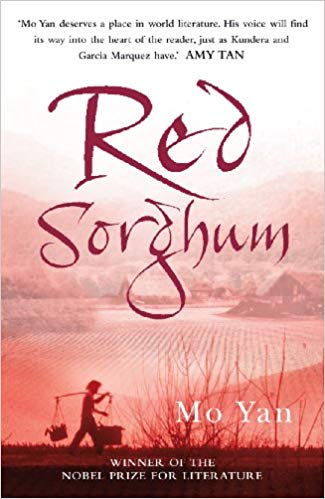
Mo Yan is a fascinating writer with an incredible career. Winner of the Nobel Prize for Literature back in 2012, his pen name translates to ‘Don’t Speak’, which was inspired by a repeated warning from his parents about the dangers of speaking out.
Red Sorghum is not only Mo Yan’s most famous novel but also one of the most successful and beloved Chinese novels of the past hundred years.
Similar to Jung Chang’s historical biography Wild Swans, this Chinese novel spans three generations and begins during the Japanese invasion of China in the 1930s, the most famous incident of which was the Rape of Nanjing.
China saw so many political crimes and social tragedies throughout the 20th century, both from without and within, and Mo Yan found the strength to capture that in his works.
Mo Yan is one of the great Chinese writers of the 20th century, and Red Sorghum is one of the very best modern classic books to have come out of China.
Buy a copy of Red Sorghum here!
Kindred by Octavia Butler
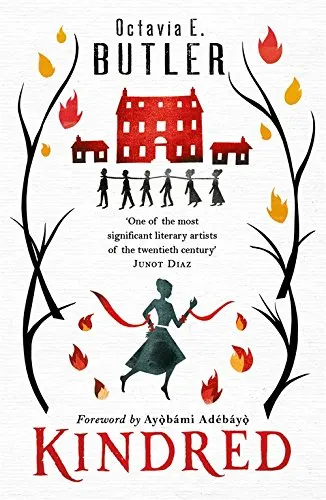
A generation-defining science fiction novel and one of the best pieces of American fiction to come out of the 20th century, Butler’s Kindred is a true masterpiece.
Written by Black American author Octavia E. Butler, Kindred is considered by many to be her magnum opus, a piece of incredible literary science fiction.
Originally published in 1979 and set in 1976, Kindred follows a Black writer named Dana and her white husband Kevin as they find themselves inexplicably tethered through time to a plantation in the year 1815.
When the novel begins, Dana and Kevin are unpacking after moving to a new house in California, when she finds herself teleported back 150 years to a plantation in Maryland and the sight of a drowning red-headed boy.
Dana saves the boy from drowning and immediately finds herself facing down the barrel of a white man’s gun, before being yanked back through time to her present in 1976.
As it transpires, the drowning boy is Rufus, an ancestor of Dana’s who will father a child with one of his family’s slaves, and Dana is now caught in a loop: any time Rufus’ life is threatened, she is pulled back to save him.
Similarly, if she is put in harm’s way while in the past, she is sent back to 1976. On her third journey back to 1815, her husband is dragged back with her.
Being a Black woman married to a white man, Dana is assumed a slave, and Kevin her owner. Kindred is a sci-fi novel about cruelty and compassion, about the importance of education and empathy.
A true literary masterpiece of the 20th century by one of the US’s most important literary voices, Kindred is one of the most important and best modern classic books.
Beloved by Toni Morrison
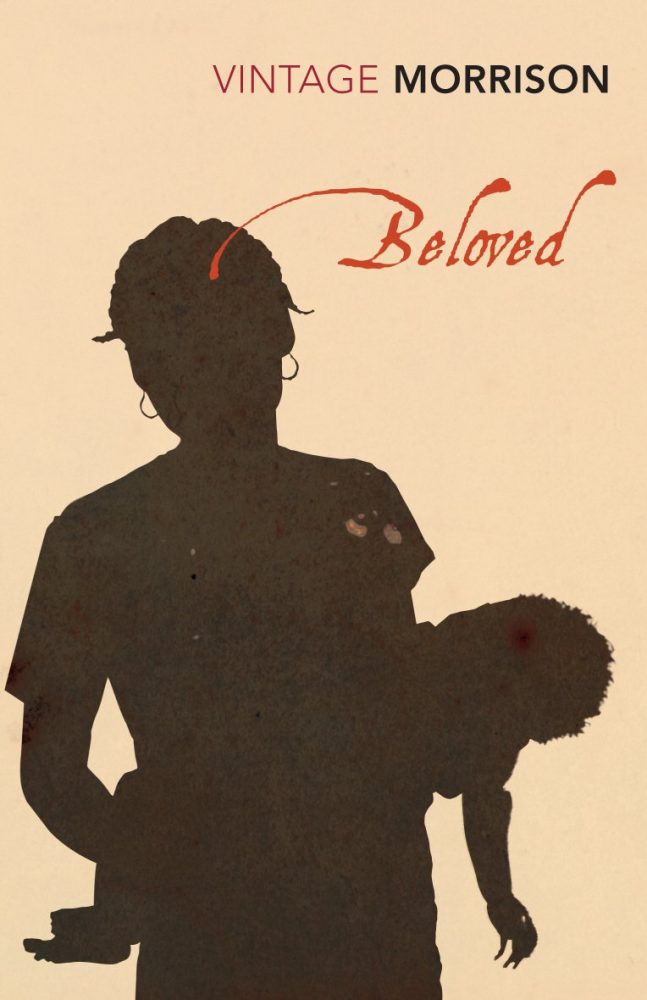
Toni Morrison is widely regarded as one of the greatest American writers of all time. Her novels set a standard for American fiction that is hard to match.
Beloved, one of her most celebrated books, was written in 1987 and set in 1873, after the end of the American Civil War.
Our protagonists are former slave Sethe and her teenage daughter Denver. Their home is haunted by a ghost which they believe to be that of Sethe’s own eldest daughter.
When a former slave from the same plantation on which Sethe once worked, a man named Paul D, turns up at their home, he drives the ghost away.
Paul D then invites the mother and daughter to a carnival, and when they return home, a young woman named Beloved is waiting for them on their front porch.
Beloved is a story of slavery, of its traumas and the ways in which it defines a person, their family, and their community. It is a classic of American fiction, a true masterpiece, and one of the very best modern classic books of the 20th century.
The Lord of the Rings by J.R.R. Tolkien
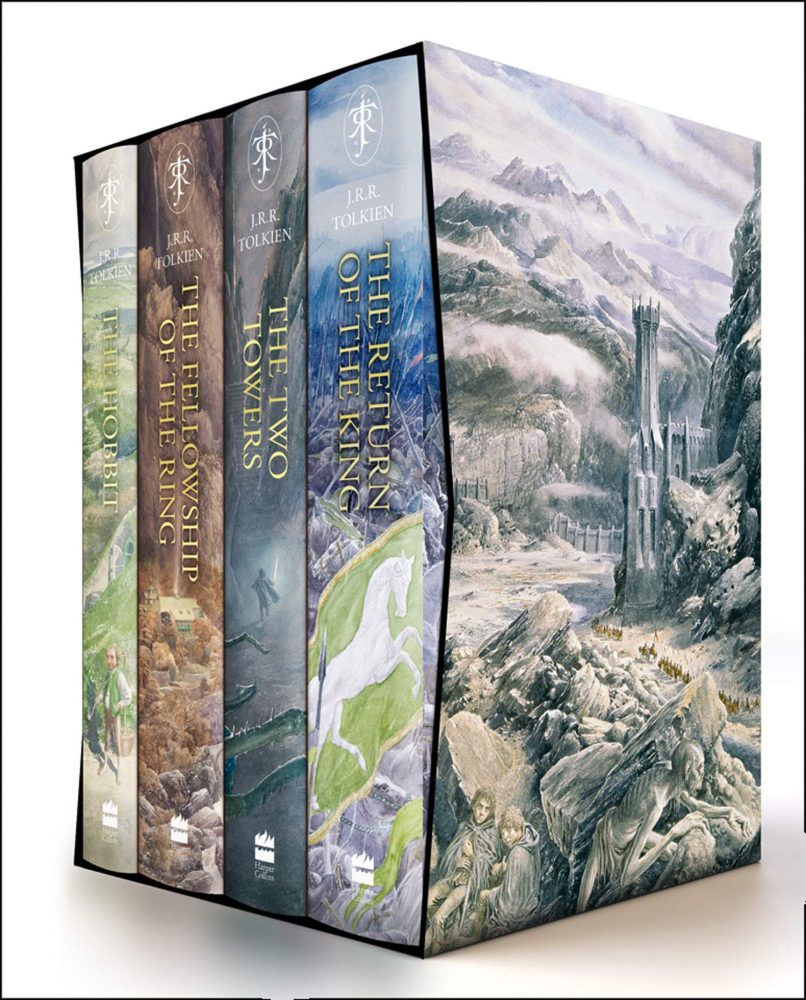
Tolkien’s The Lord of the Rings trilogy of fantasy novels is the most important and influential work in the fantasy genre. With these books, Tolkien took what he began with his children’s novel The Hobbit and turned it into an entire world — a world with its own deep history, lore, and languages.
In fact, in many ways these books are a showcase in building an entire, fully realised fictional landscape. The scope of Tolkien’s Middle Earth is unmatched in fiction even to this day.
This is also the series that took aspects of European folklore and mythologies and turned them into staples of the genre.
Races like elves and dwarves; settings like mines and mountains; multiple language systems; wizards; royal lineages; armies of light and darkness. All of this began with Tolkien and The Lord of the Rings.
If you love what the fantasy genre has given you — if you love its themes and settings and tropes — these books are where it all began.
The Lord of the Rings is the greatest achievement of the fantasy genre, and of world-building and epic storytelling.
Buy a copy of The Lord of the Rings here!
Notes of a Crocodile by Qiu Miaojin
Translated from the Chinese by Bonnie Huie
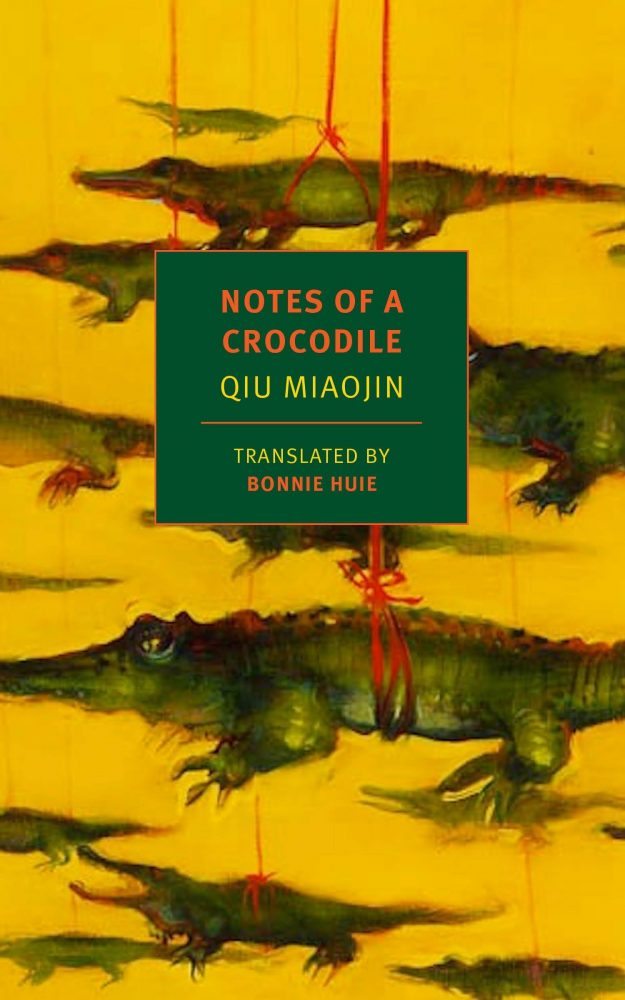
Qiu Miaojin’s Notes of a Crocodile is a few things: it is one of the quintessential Taiwanese novels of the twentieth century; it is also one of the most prominent and powerful lesbian novels of the past few decades.
Separated into a series of notebooks, Notes of a Crocodile tracks the university years of a queer Taiwanese student who goes by the name Lazi.
Lazi is tormented by her love for a woman in the year above; their relationship is tumultuous and aggressive. She also spends time in queer circles populated by other emotionally unhealthy young people.
This is a visceral tale of personal hatred and acceptance, of love and lust and danger. Reminiscent of Osamu Dazai’s No Longer Human, this Taiwanese novel rips you apart unapologetically.
Buy a copy of Notes of a Crocodile here!
The Left Hand of Darkness by Ursula K. Le Guin
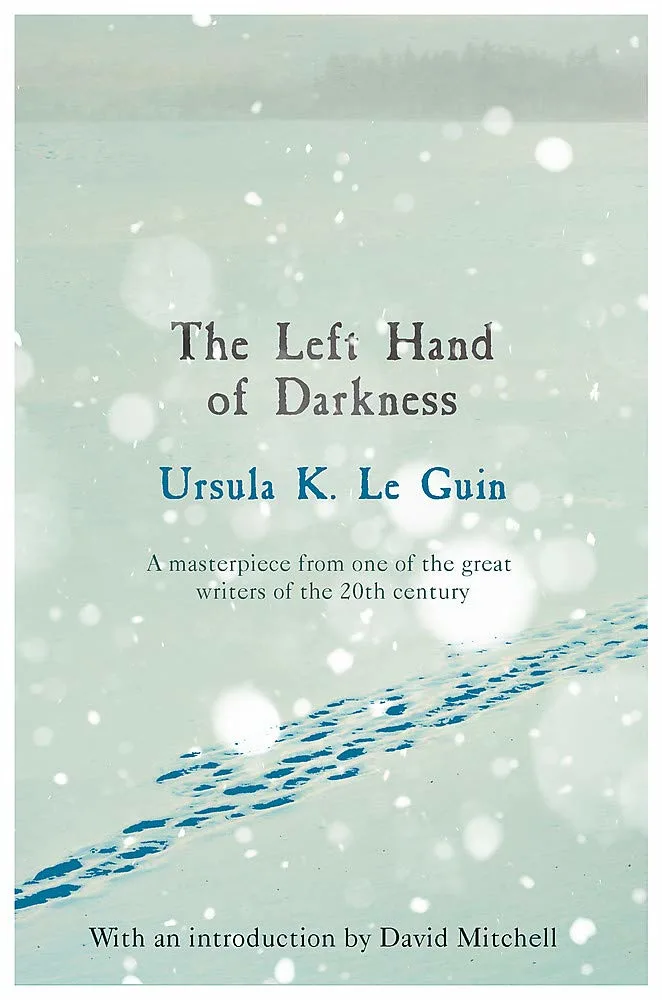
Ursula Le Guin was a 20th century author who did so much for the science fiction and fantasy genres.
She was an incredible writer of great moral integrity. She loved art, and felt strongly about giving voices to the voiceless.
There aren’t many authors as revered for their works in both the science fiction and fantasy genres, but Le Guin was truly special in this regard (and many others).
Ursula Le Guin’s sci-fi masterpiece The Left Hand of Darkness is a vital piece of feminist science fiction literature.
The Left Hand of Darkness follows protagonist Genly Ai, an envoy from Earth who travels to a strange world called Gethen. Ai hopes that Gethen will join the confederation of planets, which her home planet of Earth is a part of.
Our protagonist, however, quickly becomes shaken and surprised by the fact that Gethen’s population are “ambisexual”, which means they have no fixed gender.
This concept exemplifies the novel’s core theme of exploring ideas surrounding sex and gender, and how we allow them to affect modern society’s social and political laws.
Ai has arrived on a planet entirely unburdened by the societal segregation of gendered groups, a world of Le Guin’s own imagination.
The Left Hand of Darkness has touched many readers on a deep emotional level, as it asks questions about the impact of gendered society and how gender divides work to isolate us as groups and as individuals.
It’s also, quite simply, an exceptional piece of science fiction; a blend of Star Treke-sque space opera and speculative, philosophical sci-fi. Amongst science fiction novels, this is one of the true masterpieces of its century, and one of the best modern classic books of its time.
Buy a copy of The Left Hand of Darkness here!
Endless Night by Agatha Christie
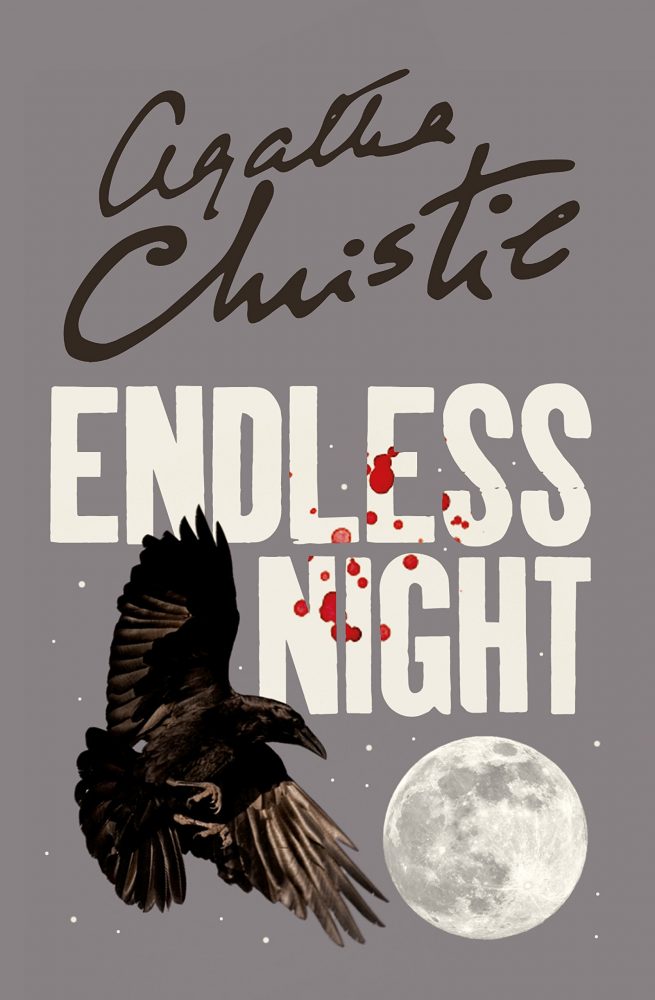
Agatha Christie was, and always will be, queen of the murder mystery novel. Her books are true classics of the genre, heralded as the best crime novels ever written.
One of Christie’s later works, Endless Night, is also one of her few standalone novels — that means no Poirot or Miss Marple to be seen.
Written in 1967, Endless Night is a gothic-inspired mystery thriller, and one of the best novels Christie ever wrote.
The book takes place in a small English village, in which a young chauffeur named Mike meets a wealthy American heiress named Ellie, and the two quickly fall in love.
They buy a house in this village, one which the locals insist is cursed, and employ a famous architect to restore and renovate it to their liking.
The house’s curse begins to show itself, as do strange and suspect supporting characters, including Ellie’s long-time companion Greta.
Endless Night is a claustrophobic gothic mystery novel, one of the Queen of Crime’s finest works, and one of the best modern classic books of the second half of the 20th century.
Buy a copy of Endless Night here!
Dune by Frank Herbert
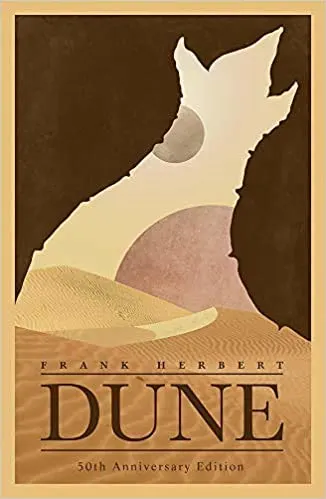
There are sci-fi novels, and then there’s Dune. An enormous space opera full of intricate and political world-building, Dune is a thematically dense creature that explores enormous social and political concepts.
These concepts stretch from those of power and autonomy all the way to tackling the toxic tropes and habits of narratives and storytelling.
Dune is daunting in its size and scope, both in terms of the galactic world it presents us with, and also the themes it aims to explore and tackle.
Set in a far-distant future, the world of Dune harkens back to mediaeval Europe, in which noble houses control certain areas of space. Our protagonist, Paul Atreides, is the son of one such noble house, and that house has just been given stewardship of the planet Arrakis.
Arrakis is a desert planet rich in something called “spice”, a drug that is vital for so many aspects of life in this world. But Arrakis is also a dangerous and almost inhospitable place.
The novel takes us on a journey across the planet, as we learn about complex political games, subterfuge, manipulation, and Shakespearean backstabbing.
Few science fiction novels are as detailed, well-plotted, well-considered, and well-formed as Frank Herbert’s Dune. The pinnacle of 20th century epic sci-fi and one of the best modern classic books of the past several decades.
We Have Always Live in the Castle by Shirley Jackson
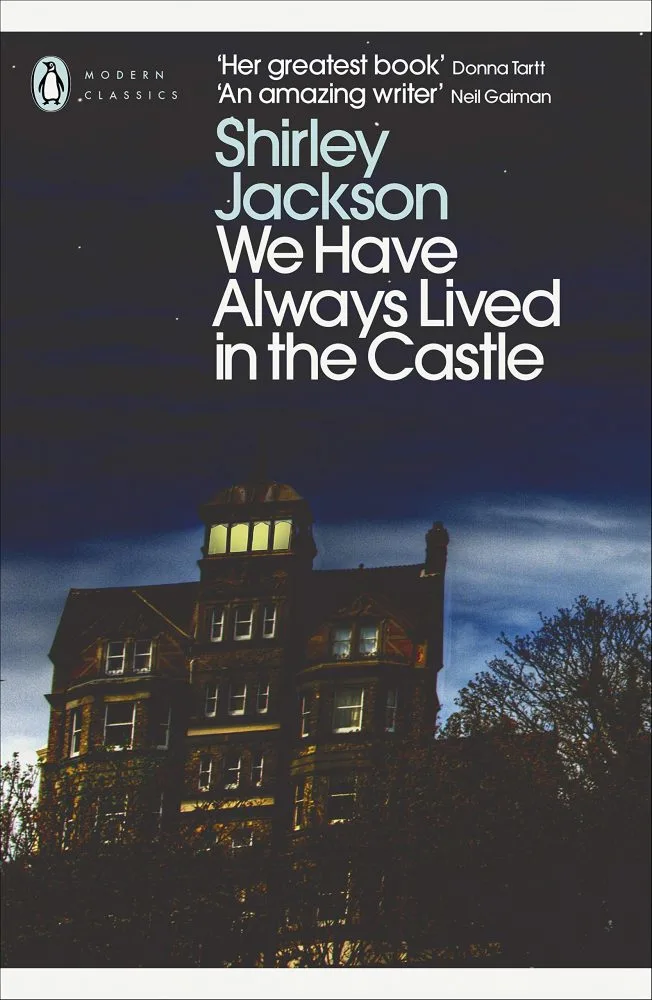
Like the UK’s Daphne du Maurier, the US’s Shirley Jackson was a pioneer of 20th century gothic literature.
Famously reclusive, Jackson wrote several beloved short stories and novels, the finest of which is her gothic masterpiece We Have Always Lived in the Castle.
An inversion of the tropes of the gothic in many clever ways, We Have Always Lived in the Castle follows the youngest sister of an isolated family at the edge of town.
Merricat lives with her sister and uncle; shunned by the townsfolk and hidden away in their big house, Merricat has set up superstitious tokens as wards around their property.
Her sister Constance never leaves the property, and their uncle Julian is confined to a wheelchair as he obsessively writes his memoirs.
The rest of the family died by arsenic poisoning, and now Merricat is the only one who ever leaves the house to go shopping, but she is not welcomed by the locals.
This is a masterpiece of tension and unease; a mesmerising gothic novel that drips with paranoia and upset. Few gothic novels hit as hard, yet as subtly, as We Have Always Lived in the Castle; one of the very best modern classic books.
Buy a copy of We Have Always Lived in the Castle here!
Slaughterhouse-Five by Kurt Vonnegut
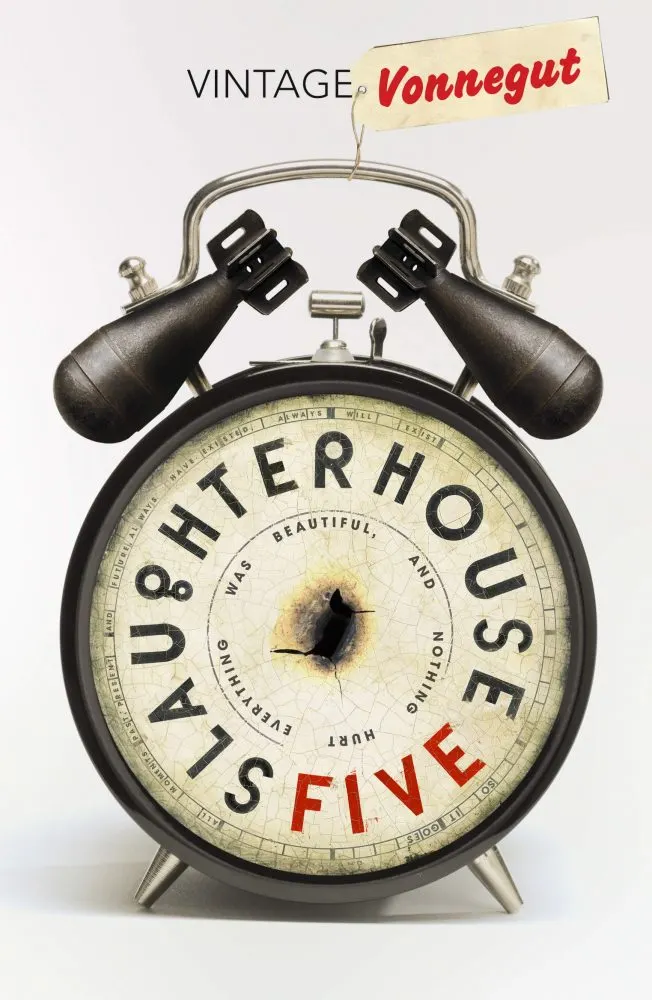
Kurt Vonnegut was an unmistakable genius of postmodern 20th century literature.
Before becoming a writer, Vonnegut served in World War II, was captured during the Battle of the Bulge, and survived the bombing of Dresden by hiding in the meat locker of a slaughterhouse. It was these experiences that inspired Vonnegut’s 1969 magnum opus, Slaughterhouse-Five.
The novel tells the story of American man Billy Pilgrim, who saw the same traumas of war that Vonnegut saw, but was also abducted by aliens and put in a zoo on the planet Tralfamadore. Slaughterhouse-Five is an anti-war science fiction novel.
It is deeply moral and philosophical, detailing the effects of war on the human psyche. It asks big questions related to purpose, life, and death.
There is nothing quite like Slaughterhouse-Five, one of the great anti-war novels and a true masterpiece of 20th century fiction.
Buy a copy of Slaughterhouse-Five here!
To Kill A Mockingbird by Harper Lee
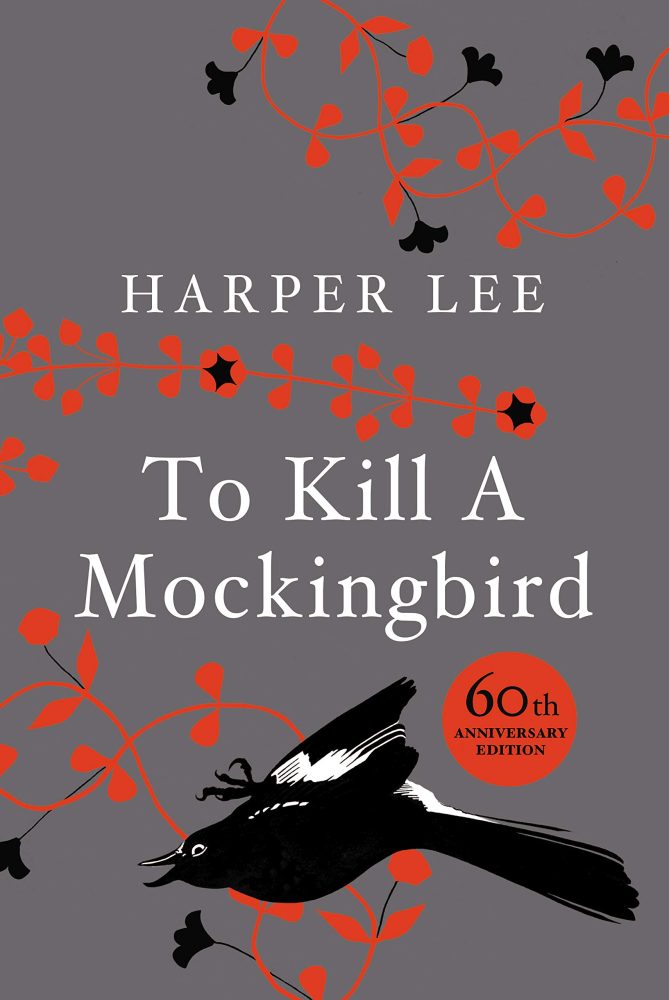
When asked to name an American classic, most readers would quickly turn to Harper Lee’s masterpiece To Kill A Mockingbird. And they’d be right to do so.
To Kill A Mockingbird, which has been adapted to the screen and the stage with enormous success, remains a true masterpiece of American fiction.
The story is told by a young girl, Jean Louise Finch, lovingly nicknamed Scout by her father, the iconic literary character Atticus Finch. Atticus is a widower, and raises Scout and her brother Jem alone, while working as a lawyer.
While we follow the local neighbourhood antics of Scout and Jem, the main crux of the novel is Atticus being appointed as legal defender in a case of sexual assault.
A Black man named Tom has been accused of raping a young white woman, and Atticus, whose Black live-in cook has helped him raise his children, has accepted the role of Tom’s defense attourney.
We see all of this play out from Scout’s young and naive perspective, and the novel explores American race relations in the South in many different ways: social, legal, and historical.
Few, if any, American novels have had the legacy of Harper Lee’s classic, making To Kill A Mockingbird one of the best modern classic books in history.
Buy a copy of To Kill A Mockingbird here!
Read More: Inspiring Quotes About Reading
Fahrenheit 451 by Ray Bradbury
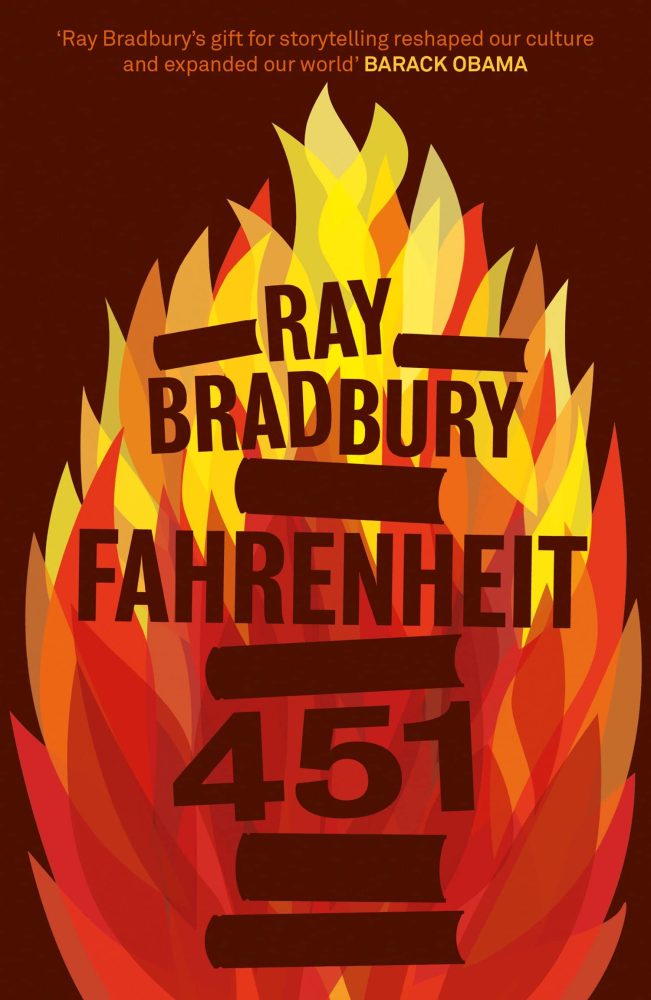
Like 1984 and The Handmaid’s Tale, Ray Bradbury’s Fahrenheit 451 is a dystopian tale that serves as a warning against the refusal and destruction of knowledge and stories.
In a version of the USA where all books have been banned, we follow a fireman — someone who burns all remaining traces of literature — as he becomes disenchanted with his work.
After giving into temptation and taking a book from a home full of books which he has been ordered to burn, protagonist Guy Montag eventually switches allegiances and vows to preserve the written word and the knowledge it contains.
Inspired by the ways in which fascist regimes burn books, remove academics from positions of authority, and limit the spread of knowledge and information, Fahrenheit 451 is a powerful warning.
One of the most important American novels of the 20th century, Ray Btadbury’s dystopian masterpiece stands shoulder-to-shoulder with the other best modern classic books of its age.
Buy a copy of Fahrenheit 451 here!
The Bell by Iris Murdoch
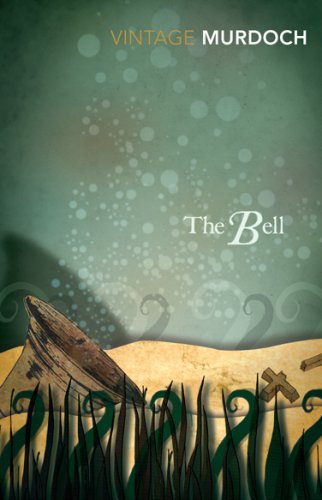
Irish-British novelist Iris Murdoch wrote many compelling and beautiful books, the most celebrated of which is arguably The Sea, the Sea, which won her the Booker Prize.
However, the one which holds a special place in my heart is The Bell, a captivating novel about a small religious community in rural England.
Our protagonist is Dora, an unhappily married woman who has travelled with her husband to Imber Court, which sits beside a lake.
On the other side of the lake is Imber Abbey, a convent which is home to Benedictine nuns. There is a legend attached to the abbey which explains why the abbey’s bell tower has no bell.
The story goes that a 12th century nun broke her vows and fell in love, which cause the bell to escape its tower and sink to the bottom of the lake.
This is a beautiful novel about secrecy, purity, and belief that stands the test of time and remains one of Iris Murdoch’s finest works.
A Clockwork Orange by Anthony Burgess
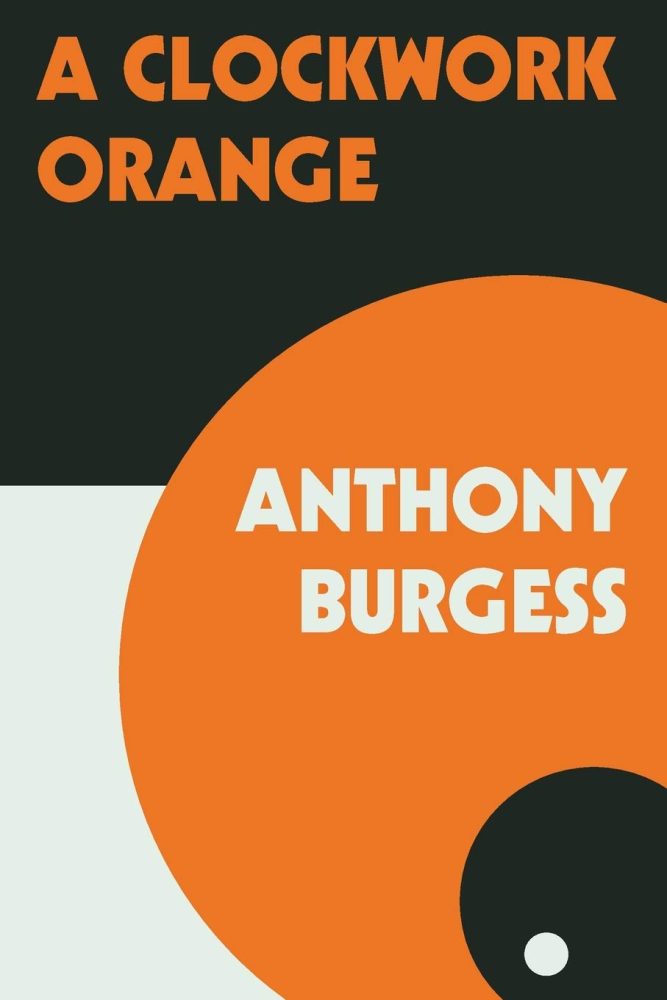
Like many of the best modern classic books of the 20th century, A Clockwork Orange is often overshadowed by its (admittedly astonishing) film adaptation by Stanley Kubrick, starring Malcolm McDowell.
But Burgess’ original novel has a unique flavour all its own. A surreal black comedy set in a strange dystopian world that could be anywhere in Europe.
Legend goes that Burgess wrote this novel in just three weeks; whether that’s true or not, what we have is a remarkable work of satirical fiction.
A Clockwork Orange is set in a future dystopia where violent criminal gangs of youths have the run of the city, and they speak in a kind of slang dialect that Burgess himself created for the novel.
Our psychopathic protagonist and gang leader, Alex, narrates the story and gleefully tells us of his love for classical music, as well as for unjust and unjustifiable acts of violence.
A Clockwork Orange is a bleak novel; often called sadistic, but undeniably original, inventive, and beloved. A real modern classic of 20th century fiction.
Side note: I have a vivid memory of picking this book up in a school staff room while training as a teacher, and reading it during my free classes. A haunting by escapist experience.
Buy a copy of A Clockwork Orange here!
The Master and Margarita by Mikhail Bulgakov
Translated from the Russian by Richard Pevear
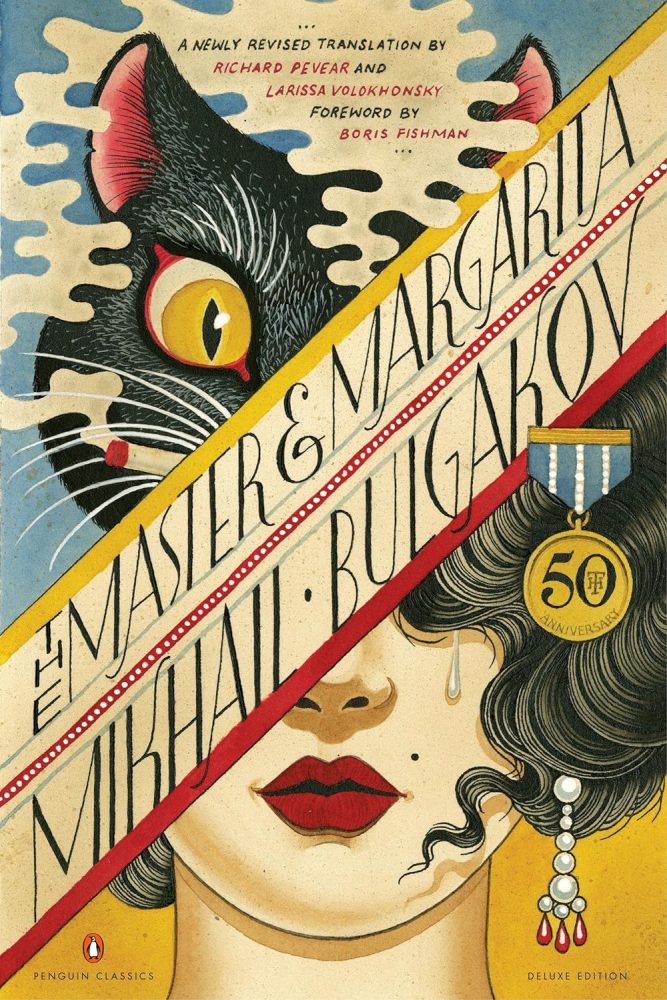
Published in 1967, The Master and the Margarita is a Russian novel that was written gradually over years during Stalin’s regime as leader of the Soviet Union, and Bulgakov didn’t live to see it published. The Soviet Union was officially secular, and this novel set out to challenge the Union’s attitude towards religion with a visit from the Christian devil, embodied by a professor called Woland.
The Master and the Margarita is a darkly satirical novel that deeply criticises the Soviet Union from within, exposing the hypocrisy and greed of its leaders.
And this is only the first half, with the novel’s second part taking place in the Jerusalem of Pontius Pilate and his trial of Jesus Christ. Dark, daring, satirical, and savvy, The Master and the Margarita stands entirely alone as a stunning and radical work of fiction, and one of the best modern classic books of its time.
Buy a copy of The Master and the Margarita here!
Poor Things by Alasdair Gray
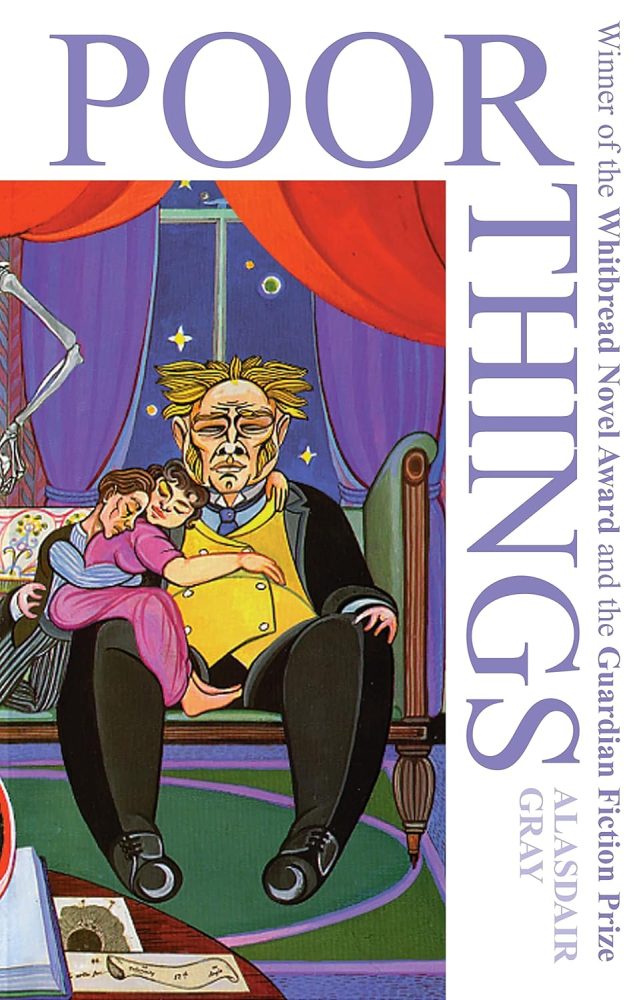
Written by 20th century Scotland’s greatest author, Alasdair Gray, Poor Things is at once an homage to the gothic legacy of Victorian fiction and a pseudo-feminist satire of the genre. On its surface, Poor Things is a creature stitched together by Lolita, Flowers for Algernon, and, appropriately, Frankenstein. But there is much beneath the surface of this great Scottish novel.
Poor Things is framed as a true account written by a 19th-century doctor named Archie McCandless — a book lost to time, rediscovered, and then edited back together by Gray himself. It also features a letter by McCandless’ wife which refutes everything narrated to the reader in the story proper.
That story is about McCandless befriending a monstrous-looking surgeon at medical school, and being privy to the fact that this surgeon, Baxter, had recovered the dead body of a pregnant woman, replaced the woman’s brain with that of her unborn child, and revived her. When McCandless falls in love with Bella, a darkly comedic journey across Europe ensues. This is a wildly strange and funny gothic parody.
Buy a copy of Poor Things here!
The Shining by Stephen King
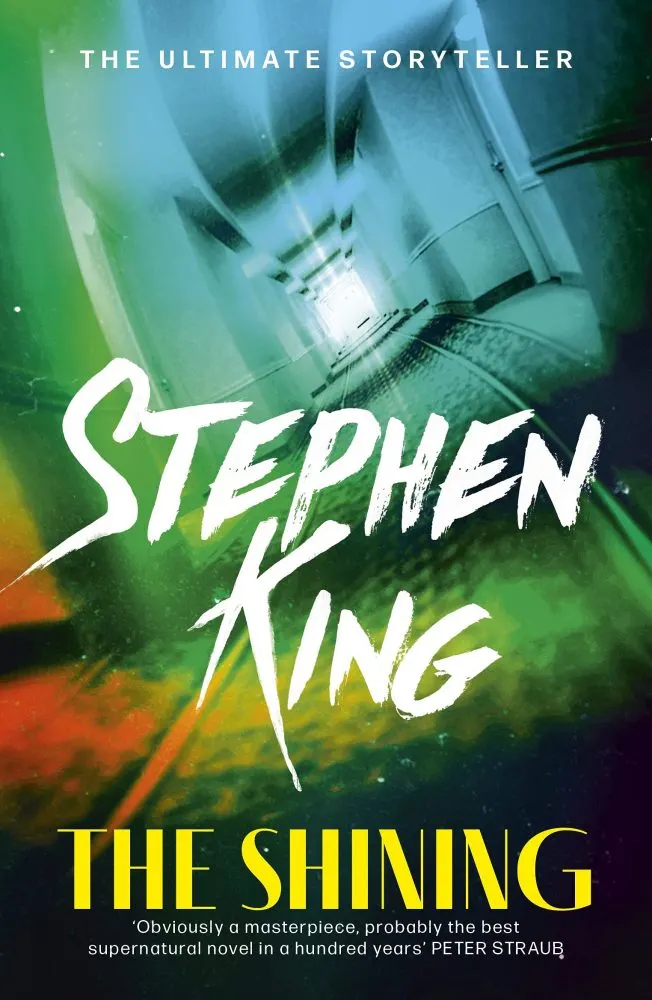
Stephen King will forever be known as the master of American horror, having penned some of the most revered and best-selling novels of the 20th and 21st centuries. Choosing a novel to represent his enormous library of works is impossible, but The Shining is certainly one of his finest, and most widely-read. And let’s not forget Kubrick’s iconic 1980 film adaptation.
The Shining begins with our protagonist, an unemployed recovering alcoholic, finding employment as a caretaker at the remote and imposing Overlook Hotel over the deserted winter period. The now iconic protagonist Jack Torrance drags his wife and son along for company, but they aren’t the only guests at the hotel. There are guests here who don’t want the family to ever leave.
A legendary horror story about isolation and psychosis, The Shining perfectly balances is creeping dread with an upsetting combination of psychology and pure, supernatural terror. Of all the fantastic horror novels of the 20th century, this one stands out as one of the smartest, most original, and most beloved by fans of the genre, and of King’s work. A true modern classic novel.
Buy a copy of The Shining here!
The Secret History by Donna Tartt
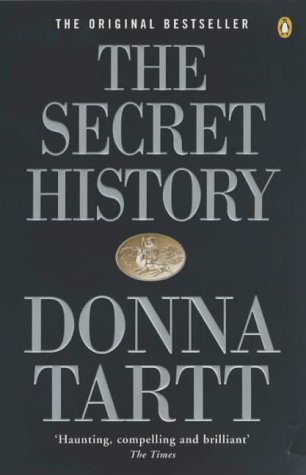
Written when she was only 29 years old, Donna Tartt’s debut novel The Secret History is, for many of us, the definitive dark academia novel. The Secret History is a twisted yet grounded tale that, on the surface, is about cults and murder but, beneath it all, is an exploration of class privilege, youthful arrogance, and ordinary evils.
The Secret History follows Richard Papen, newly enrolled at a college in Vermont. Richard is originally from a small California town, poor and uninteresting, but talented at Greek.
He quickly falls into a small class of hideously pompous and dysfunctional students who consider themselves to be their school’s elite. Slowly, this class reveals itself to be a mindless, murderous cult, projected forward by hedonism, carelessness, and arrogance.
The Secret History is a masterpiece, glued together by the internal social politics of its characters, their strained and toxic relationships, dangerous behaviours, and unpredictability.
Buy a copy of The Secret History here!
Chronicle of a Blood Merchant by Yu Hua
Translated from the Chinese by Andrew Jones
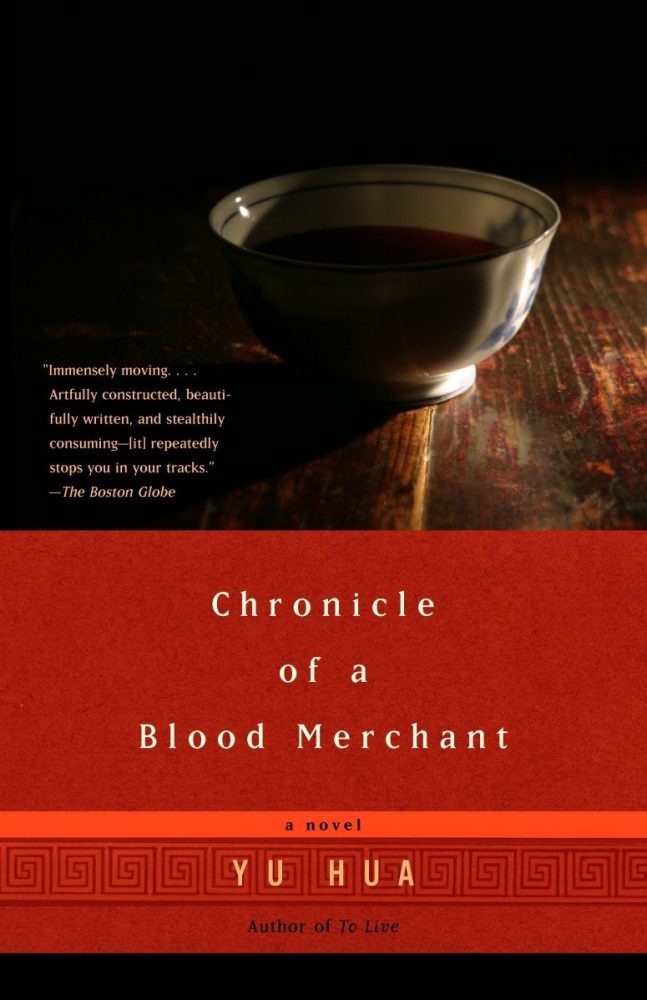
Yu Hua is one of the most prominent and daring Chinese authors of the past several decades. Crafting stories through a satirical, critical lens as he does, writing for Yu Hua is a dangerous and defiant act.
In his book China in Ten Words, Yu discusses how lax slander and libel laws in China mean his words can be co-opted and manipulated with terrifying ease.
Yu’s novel Chronicle of a Blood Merchant tells a heart-wrenching tale of a man simply trying to survive during Mao’s Cultural Revolution, a period of Chinese history where a famine led to the deaths of countless millions.
Our protagonist relies on selling his own blood to the local blood chief in order to find the money to support his family.
This becomes increasingly dangerous and is further complicated by the shame that comes from learning that one of his children is not actually his own blood.
This is a moving and desperate Chinese novel that captures a life and a moment in time where simply living a life was at its most difficult.
Buy a copy of Chronicle of a Blood Merchant here!
The Lion, The Witch, and The Wardrobe by C.S. Lewis
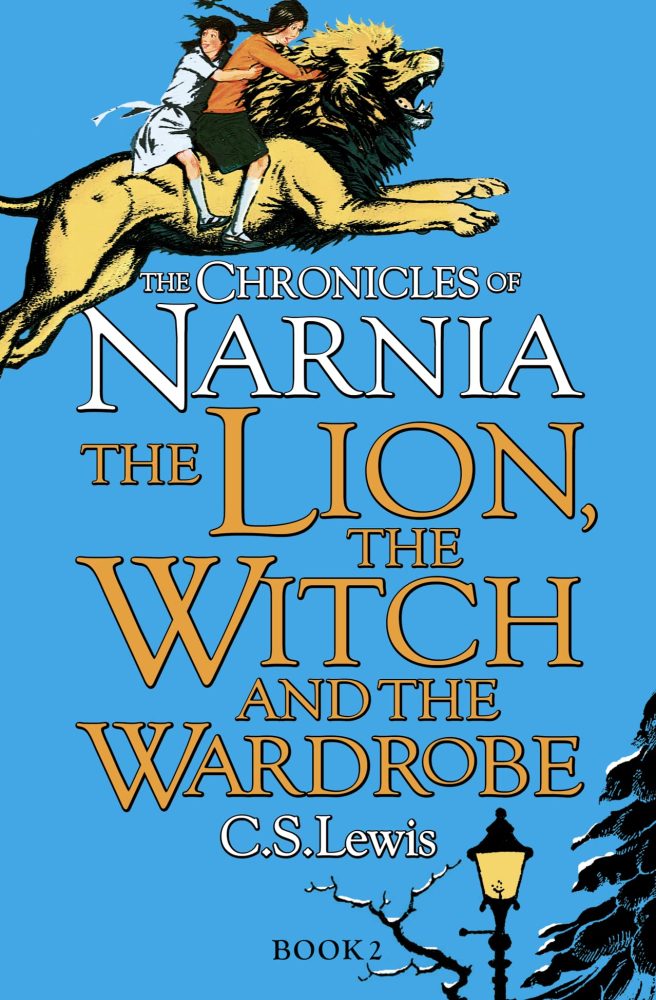
C.S. Lewis, a dear friend of beloved fantasy author J.R.R. Tolkien (above), was a born-again Christian who penned some of the most cherished children’s books of all time. This series, The Chronicles of Narnia, began with its most famous book The Lion, The Witch, and The Wardrobe.
(Although, if readers were to pick up a new collection of the series now, they’d find the sixth book, The Magician’s Nephew, placed first in the series. This is because, chronologically, it is the first in the story, serving as a prequel to the other six books).
The story follows four children who are evacuated during World War II and relocated to a large country house.
There, via a portal in a wardrobe, the children visit the magical land of Narnia, and embark on a series of fantastical journeys.
Widely known to be a biblical allegory, with the titular lion Aslan being a stand-in for Jesus, The Chronicles of Narnia has been a classic series of children’s books for decades.
Buy a copy of The Lion, The Witch, and The Wardrobe here!
Flowers for Algernon by Daniel Keyes
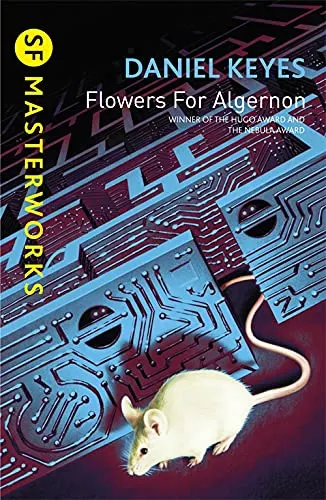
The novel for which Daniel Keyes is best remembered is a true masterpiece of science fiction, using the genre to explore themes of value, intelligence, and human rights.
Our protagonist, Charlie, is an “intellectually disabled” man in his thirties who works in a bakery. Charlie is soon made a test subject for intellectual development.
The first test subject was the titular Algernon, a mouse who underwent experimental surgery with impressive results, and Charlie will be the first human test subject.
As the novel, written as a diary from Charlie’s perspective, progresses, we see his intelligence grow, and with it his observations, his relationships, and even his grammar.
Charlie’s development from a man of lower-than-average intelligence to one of genius status leads us to question the ways in which we treat one another based on our intelligence.
This is a sci-fi novel with valuable themes to consider, and the ways in which Keyes explores those themes also tug viciously at the reader’s heartstrings.
A remarkable masterpiece of the genre, Flowers for Algernon is one of the best sci-fi novels ever written, and as such one of the best modern classic books of its time.
Buy a copy of Flowers for Algernon here!
The Color Purple by Alice Walker
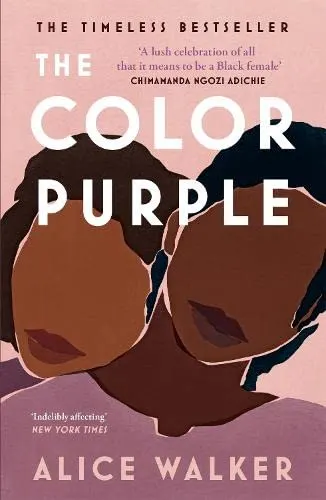
Currently the only work featuring a lesbian relationship written by a woman to win a Pulitzer, this epistolary novel is a true classic that spans twenty years of protagonist Celie’s life.
It’s a beautifully written and important novel that can be difficult to read at times due to its bleak subject matter.
While explicitly a lesbian novel The Color Purple also tackles race, class, gender, sexual assault, domestic abuse, and religion.
Told through a series of letters to ‘God’ (and later her sister Nettie in Africa), Celie is fourteen at the beginning of the novel and is being abused by her father. She is desperately trying to protect her sister from the same fate.
Later we are privy to the events of Celie’s abusive forced marriage to ‘Mister’ and also her developing relationship with Shug, Mister’s mistress, who shows her love and intimacy for the first time.
The Color Purple is an American masterpiece, an incredible piece of queer Black fiction, and one of the very best modern classic books.
Buy a copy of The Color Purple here!
Lord of the Flies by William Golding
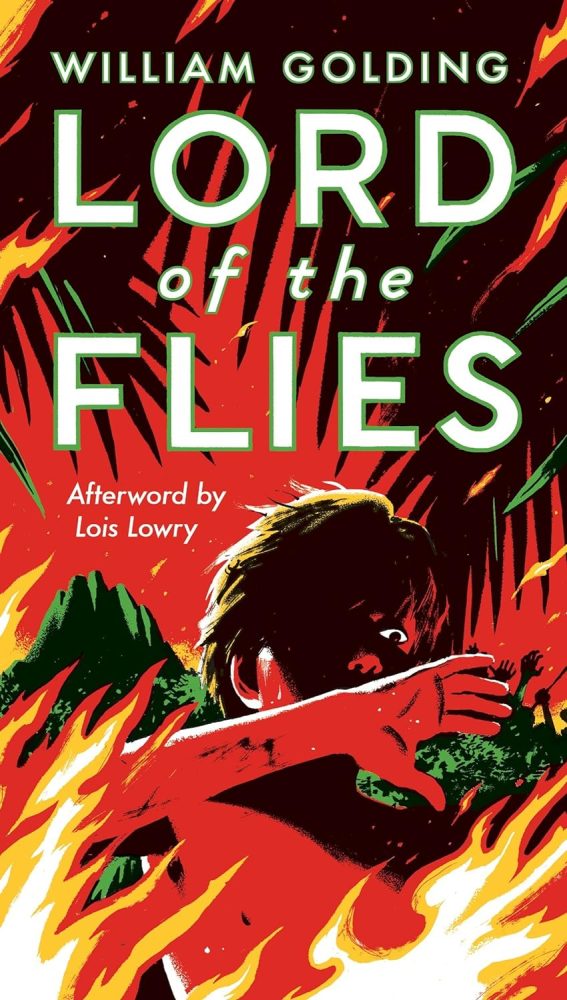
It’s good to be critical of Lord of the Flies — a novel so often lauded for its depiction of a world without societal structures.
This is because we often forget that Golding’s novel is fiction, and when a real-life Lord of the Flies event actually occurred, it didn’t resemble the book at all.
That event was discussed in the phenomenal history book Humankind by Rutger Bregman, and it highlights dark and depressing cynicism of Golding’s novel.
All of that aside, however, Lord of the Flies does remain a fantastic work of fiction in its own right. As a former teacher, I always thoroughly enjoyed teaching the novel. Teenagers are often so rapt by it.
Lord of the Flies is set during World War II, when a group of English schoolboys are stranded on a deserted island after their plane goes down.
The boys quickly descend into tribalist behaviour, begin to believe in and worship a beast that lives on a hill, and eventually turn to violence against one another.
It’s an excellent novel, and certainly one of the best modern classic books of its era; but it’s also important to remember that Golding was overly cynical when it comes to human behaviour, and it is just a novel.
Buy a copy of Lord of the Flies here!
The Bell Jar by Sylvia Plath
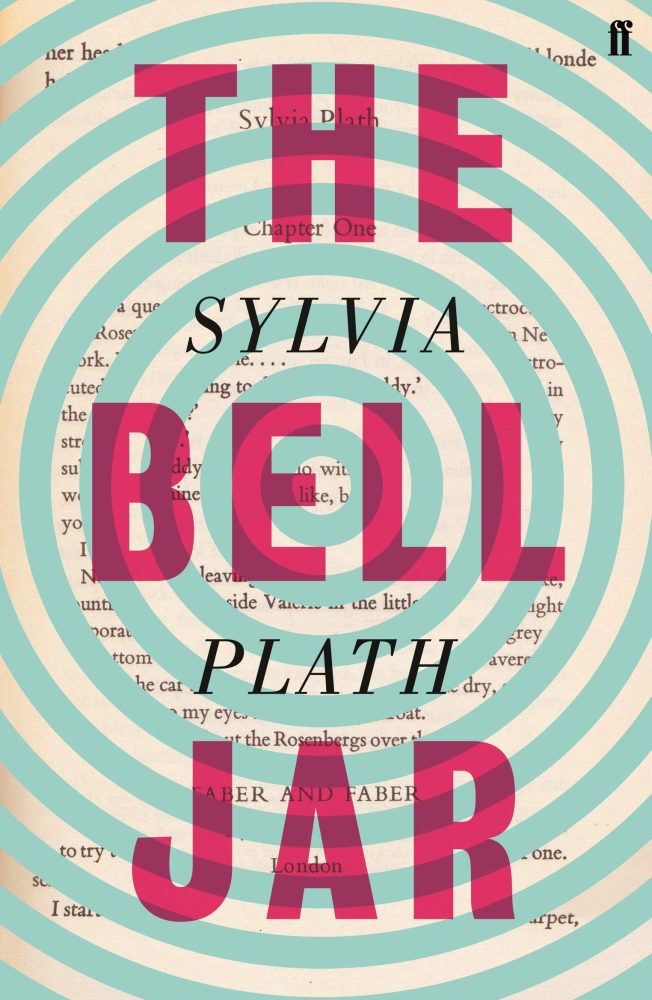
The only novel by celebrated American poet Sylvia Plath, The Bell Jar is a modern classic of feminist fiction.
The Bell Jar is a semi-autobiographical novel inspired by Plath’s own life and her descent into the throes of mental illness.
The novel follows the life of college graduate Esther who lands an internship at a women’s magazine in New York City. Disenchanted and hollowed out, Esther feels little joy and only increasing disorientation and suffocation.
The Bell Jar a novel that explores the role of a woman in 20th century society, and the titular bell jar is a symbol of suffocation, both from a feminist angle and one of mental illness.
Buy a copy of The Bell Jar here!
Catch-22 by Joseph Heller
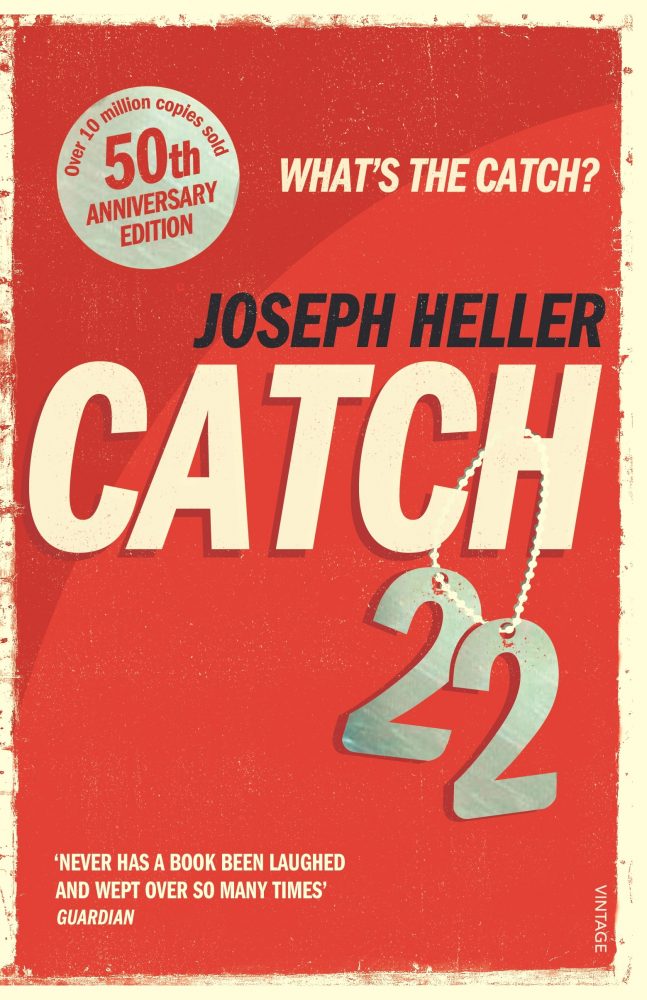
Published in 1961, Catch-22 is a satirical anti-war novel set between the years of 1942 and 1944. Our protagonist is John Yossarian, an American captain of the 256th US Army Air Squadron.
Moving freely and out of chronological order, Catch-22 mostly follows the events of Yossarian’s life during World War 2, primarily set on the Mediterranean island of Pianosa.
Inarguably one of the great American novels of the 20th century, Catch-22 has had an impact that is hard to measure.
Satirising the absurdity of warfare and the lives of military soldiers on the battlefield, Catch-22 is the quintessential American war novel and one of the best modern classic books of its time.
The Old Man and the Sea by Ernest Hemingway
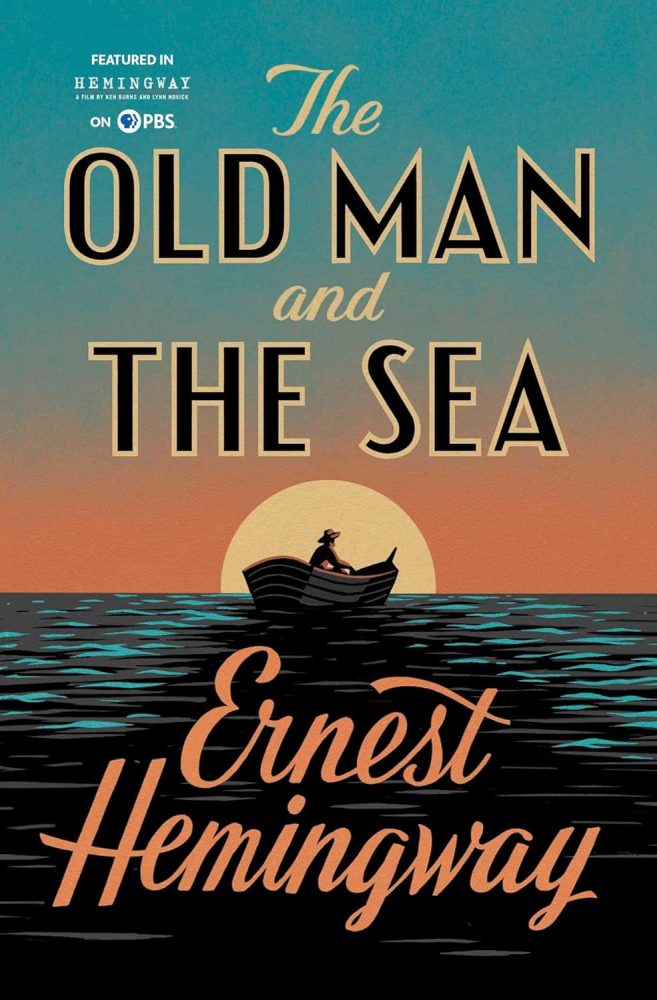
Revered American author wrote many bestselling books, and his own life has almost become mythology at this point.
But the most famous and frequently discussed Hemingway story will always be The Old Man and the Sea, a short and quiet novella published in 1952.
This classic American novella tells the story of an old and unlucky fisherman named Santiago, and opens with his former trainee helping him get ready for yet another fishing trip out at sea.
Much of the story depicts the old man’s persistent physical struggle with reeling in a large fish he has hooked; a struggle that lasts through the night.
The Old Man and the Sea was heralded and celebrated by critics of the time as Hemingway’s masterpiece; his finest work.
Since then, the story has continued to have a lasting legacy, and now stands as one of the best modern classic books of the American canon.
Buy a copy of The Old Man and the Sea here!
Lolita by Vladimir Nabokov
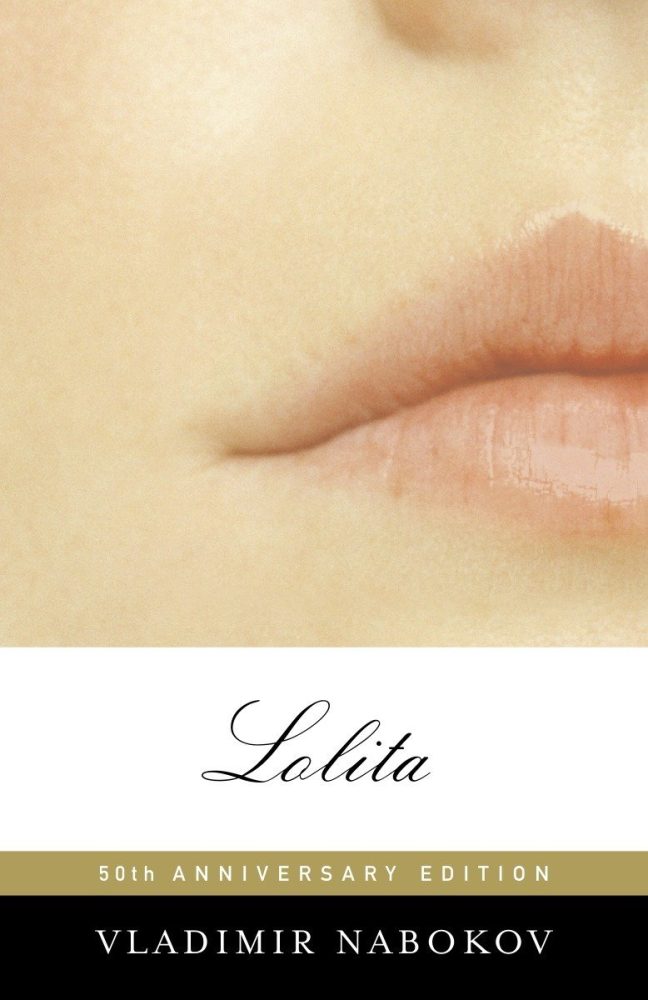
Lolita has always been a fascinating novel; a work of aesthetic and literary beauty, written in some of the most stunning and vivid prose you’re ever likely to read.
However, the novel has repeatedly been marred by venomous criticism for its depictions of a dark, taboo, and arguably evil subject matter.
That clash of beauty and disgust is remarkable in its own right, and the discussions that Lolita encourages amongst its readers and critics are also lively and worthwhile.
The novel presents us with a famous example of the unreliable narrator: a professor who becomes obsessed with an underage girl whom he kidnaps and sexually abuses, calling her Lolita.
Few novels have ever been written in such illustrious and breathtaking prose, and have dared to explore such subject matter so brazenly and with such complexity.
Lolita is like no other novel that exists, and remains one of the most daringly unique and best modern classic books of all time.
A Confederacy of Dunces by John Kennedy Toole
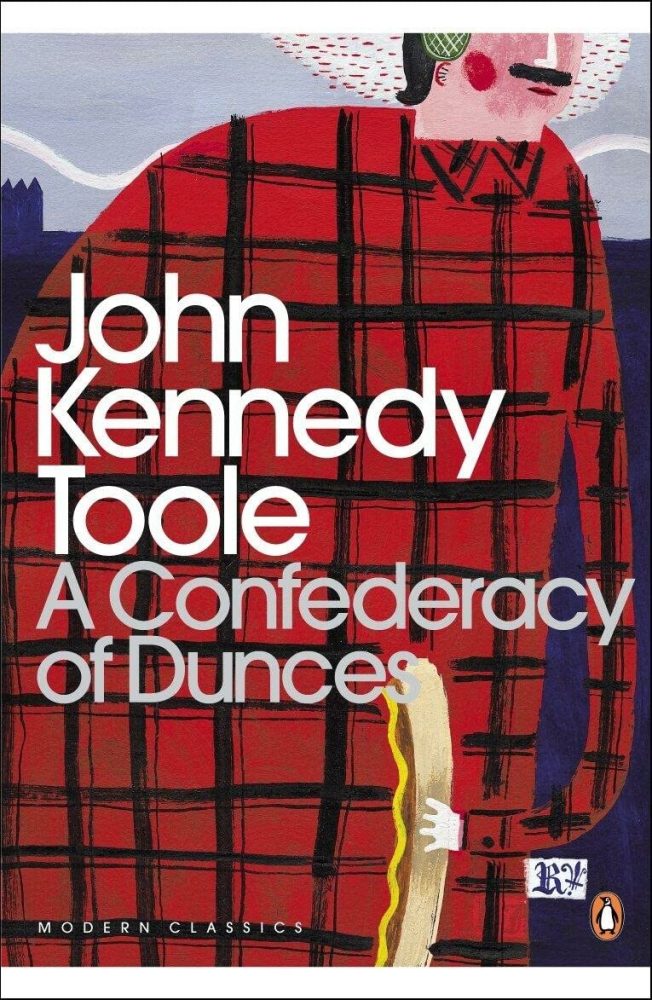
A curious classic of modern American literature, A Confederacy of Dunces is a fantastic dark comedy that is a favourite of many readers.
Our protagonist is a loser who would describe himself as anything but. He considers himself a scholar and the smartest person in the room.
Ignatius J. Reilly is thirty and lives with his mother. Over the course of the novel, we see him get into various dreadful social and professional situations that are exacerbated by his inflated ego.
There is a perpetual air of sadness surrounding this novel, however. Its author never lived to see its publication.
After several failed attempts to see his work published, Toole ended his own life, only to be posthumously awarded the Pulitzer Prize a decade after his death.
Decades after the novel’s publication, A Confederacy of Dunces stands tall amongst many of the best modern classic books to come out of the United States in the 20th century.
Buy a copy of A Confederacy of Dunces here!
The Best Modern Classic Books (21st Century)
The 21st century has already seen some of the best novels of all time, which is a truly incredible statement to make. We are living in a golden age of fiction writing, and it’s glorious.
Of course, we have to be careful when labelling a book a “modern classic”, because we may well be wrong. The book might not stand the test of time. Because of this, the modern classic books you’ll find here have all been critically acclaimed, won awards, been adapted to film, and are already beloved by countless readers. Enjoy!
Never Let Me Go by Kazuo Ishiguro
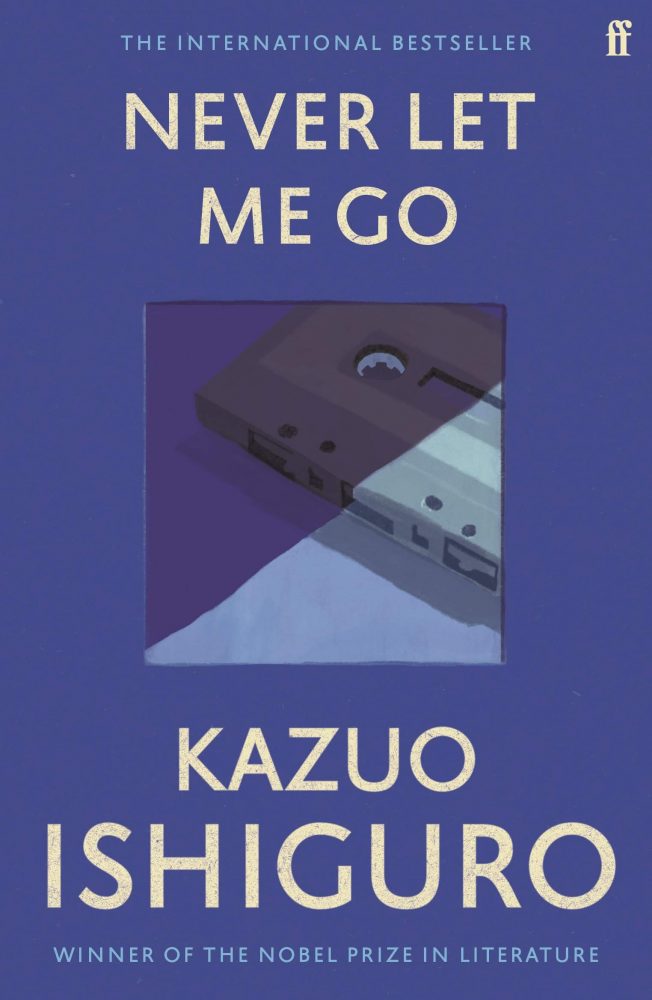
It is a truth universally acknowledged that Never Let Me Go is Ishiguro’s masterpiece. His magnum opus. And Ishiguro himself also happens to by my favourite author.
Never Let Me Go is a science fiction novel set in the modern day. It’s a novel with a central mystery that, if you’ve never had it revealed to you, should absolutely not be spoiled.
Our narrator is Kathy, a woman who works as a carer. Who or what she cares for isn’t clear. Kathy spends much of the novel reminiscing about her childhood at a secretive English boarding school called Halisham.
We become familiar with her old friends and quietly unnerved by the elephant in the room, even though we don’t know the name of the elephant or why it’s there. As the story unfolds and secrets are revealed, tragedy sets in.
Never Let Me Go is a truly astonishing work of literary magic. One of the great works of literary fiction and science fiction. One of the best modern classics of our time.
Buy a copy of Never Let Me Go here!
Wolf Hall by Hilary Mantel
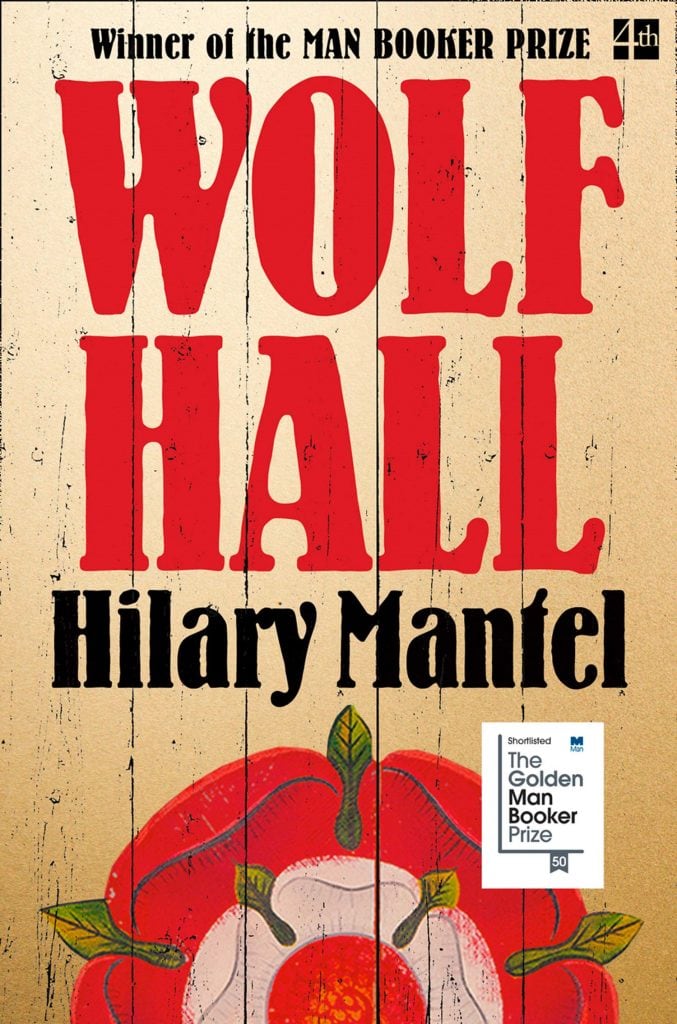
Wolf Hall manages to be many things. For many readers, it is the defining book of the historical fiction genre. For others, it’s not only one of the best modern classic books, but one of the best books ever published.
Hilary Mantel’s Wolf Hall and its direct sequel, Bring Up the Bodies, both won the Booker Prize, while the final book of the trilogy, The Mirror and the Light, was shortlisted for the Women’s Prize.
The Guardian newspaper called Wolf Hall the best novel of the 21st Century (so far), and we certainly agree that it deserves to be high on that list.
Wolf Hall is, undeniably, a masterpiece of historical fiction, and general fiction. It’s dense and its language can be challenging, but it is beautiful, clever, and enthralling.
Telling the fictionalised biography of the legendary English politician Thomas Cromwell, Wolf Hall throws readers into the fraught and frightening world of Henry VIII’s court.
We watch Cromwell rise from being the abused son of a blacksmith to the man at Henry VIII’s ear; the man with the real power in England.
Mantel paints Cromwell as a more sympathetic character than history has done, and uses that altered perspective to tell one of the most engaging historical novels ever penned.
Few novels have made as much of an impact on their respective genres as Wolf Hall has; unquestionably one of the best modern classic books.
The Lying Life of Adults by Elena Ferrante
Translated from the Italian by Ann Goldstein
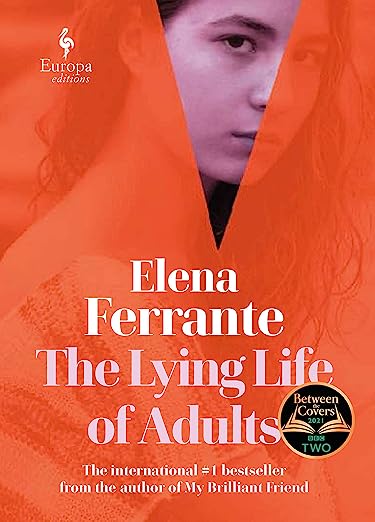
Elena Ferrante is one of the most beloved Italian authors of all time; a literary author whose works explore feminism, class, and family dynamics in fresh and deeply clever ways.
The Lying Life of Adults follows Giovanna, a girl from a wealthy family that all live in a house which sits high up, overlooking the poorer, working class people below.
Her father came from rags to riches, and now works as a professor. His wife, Giovanna’s mother, is also a well-educated woman and they are all kind and compassionate on the surface.
When her father, in an unthinkingly cruel act of sexism, compares his daughter’s looks to those of his awful, ugly sister, Giovanna is distraught.
To understand why her aunt is so hated, Giovanna visits her and gets to know her. From here, she is torn between the truths that her parents tell, and those her aunt tells.
This is a novel about patriarchy and sexism, and about modern-day class divides and privilege. An incredible piece of fiction that stands tall as one of the best modern classic books.
Buy a copy of The Lying Life of Adults here!
Station Eleven by Emily St. John Mandel
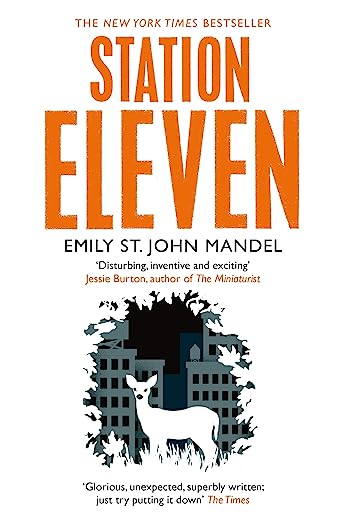
Emily St. John Mandel has proven herself a modern master of blending genre fiction with lofty literary concepts, and for this she has written many of the best modern classic books we have.
With The Glass Hotel, she created a compelling literary thriller. With Sea of Tranquility, she continued the tradition of blending the literary with incredible sci-fi storytelling.
But before those books, she gave us Station Eleven, a celebrated piece of literary fiction that turns the post-apocalypse on its head.
Rather than this being another novel about human survival, and returning us to our base, animal selves, Station Eleven is a novel about holding onto human art and culture.
This is a pandemic novel about a group of travelling troubadours; a theatre troupe who roam North America bringing Shakespeare to those of us who are left.
Station Eleven celebrates the things worth holding onto: the art that humans created, and the culture which inspired, and was in turn inspired by that art.
A beautiful and hopeful piece of fiction that encourages the reader to consider the importance of the art we create, and how it changes us, and one of the best modern classic books on the shelves.
Buy a copy of Station Eleven here!
Normal People by Sally Rooney
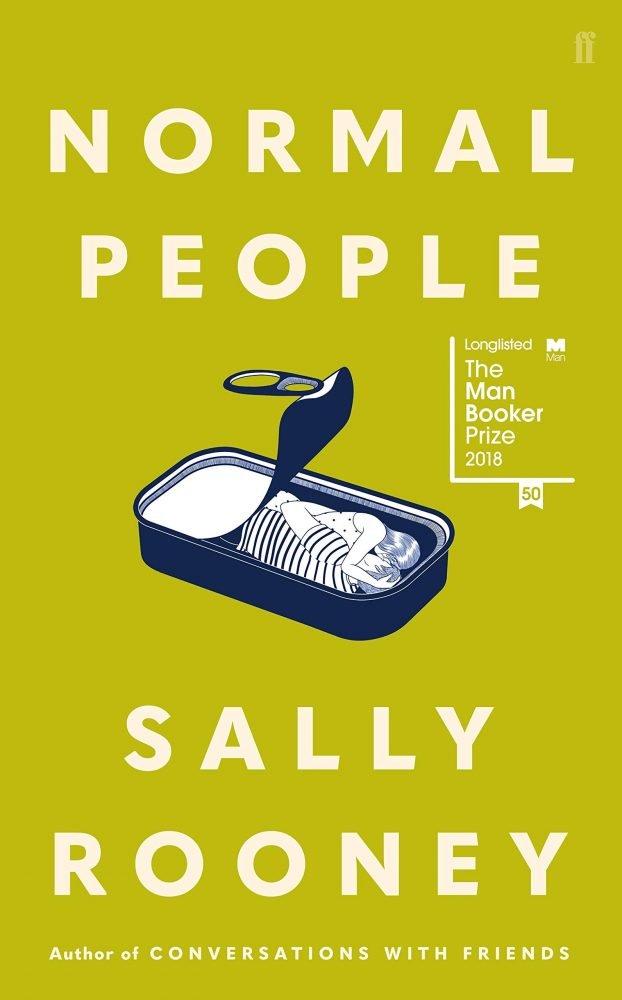
Irish author Sally Rooney’s second novel, Normal People, became an overnight literary sensation upon its publication, and it remains beloved by countless readers. This novel turned her into a star of the publishing world.
Called a modern day Jane Austen by many readers, Rooney is a writer exploring the ebb and flow of modern-day relationships within the context of capitalism and outmoded class systems.
Normal People follows two teenagers, Connell and Marianne, who develop a fraught kind of romance over the course of the novel.
While at school, Connell is popular and admired, and Marianne is meek and unassuming, outside of school Connell is a working class lad and Marianne comes from privilege. Both are well-read and intelligent, and end up attending university together, where they shift and change and struggle in different ways.
Normal People is a literary romance novel about class divides, social struggles, and the rapid ways in which we grow, learn, and change as individuals and within our relationships.
Easily one of the most beloved and cherished novels of the 21st century so far, Normal People is unquestionably one of the best modern classic books we have.
Buy a copy of Normal People here!
Breasts and Eggs by Mieko Kawakami
Translated from the Japanese by Sam Bett & David Boyd
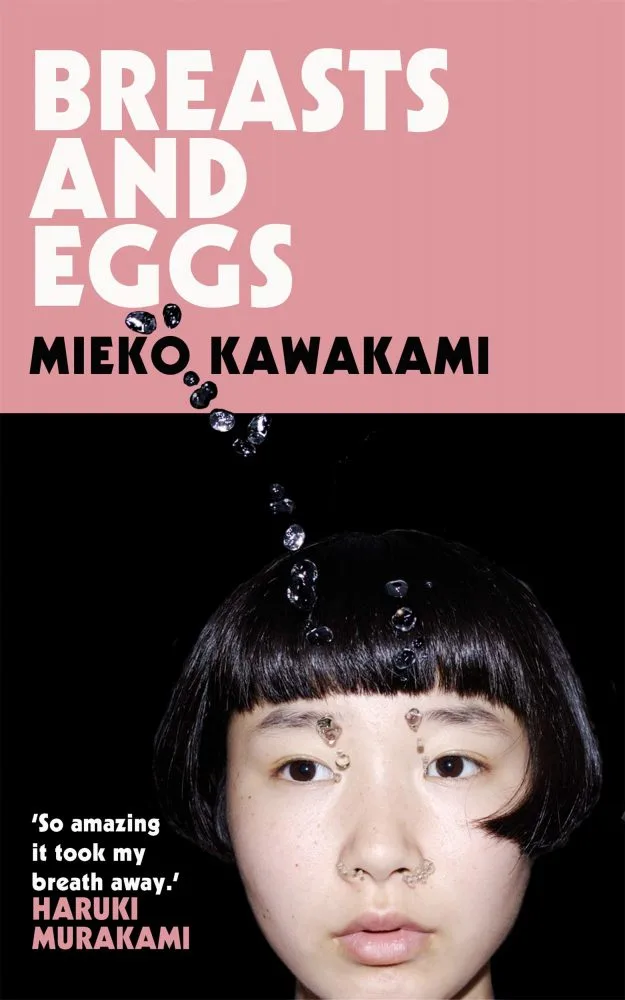
Breasts and Eggs is one of the best Japanese books of the 21st century, and an absolute masterpiece of feminist literary fiction.
Breasts and Eggs follows the story of Nastsuko, an Osaka-born writer living in Tokyo who has spent her adult life trying to see her works get published.
The first half of this two-book novel focuses on a short visit by Natsuko’s more extroverted sister and that sister’s daughter. The daughter has fallen mute and her mother is in Tokyo for breast implants. We see the world from the perspectives of all three women, and they each have differing attitudes to womanhood and its place in society.
In the book’s second story, Natsuko has made it as an author but now dreams of being a mother, though she has no real wish for a partner to share her life with.
Both stories explore how womanhood is defined and how women can find happiness, contentment, and strength in a patriarchal modern world.
This is very much a piece of hefty literary fiction about what womanhood is, what it can be, and what we are told it should be by patriarchy and tradition.
Breasts and Eggs is a groundbreaking piece of feminist Japanese fiction, and one of the very best modern classic books. A must-read for readers the world over.
Buy a copy of Breasts and Eggs here!
Kim Jiyoung, Born 1982 by Cho Nam-joo
Translated from the Korean by Jamie Chang
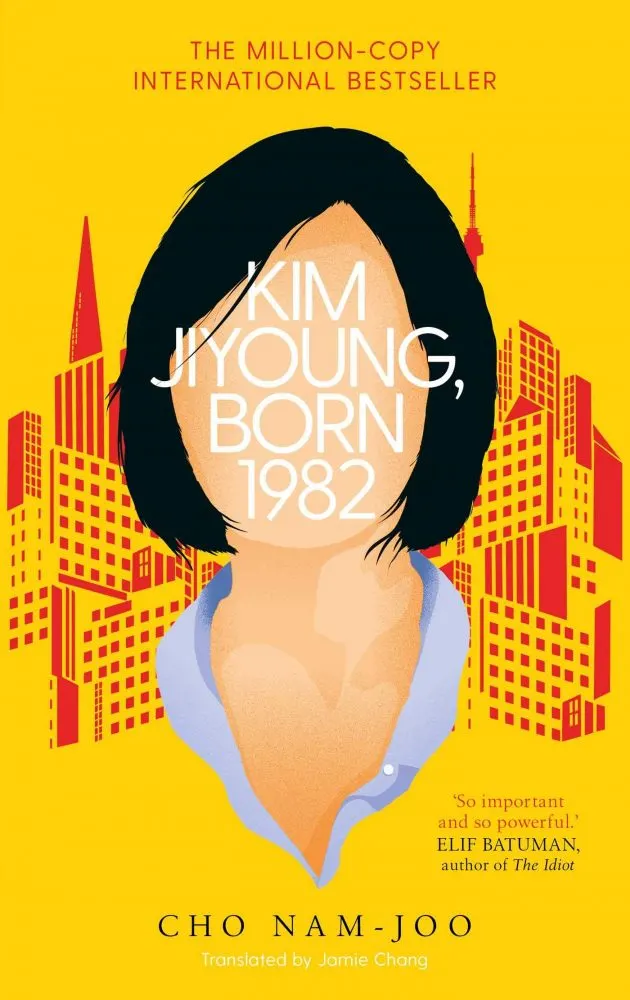
Kim Jiyoung, Born 1982 can be understood as the novelisation of the lived experiences of every ordinary Korean woman for the past forty-plus years.
Our protagonist is not one woman, but is rather a representation of the ordinary and expected experiences of your average woman in modern-day South Korea. The novel traces the life of a woman from early childhood to marriage and, eventually, motherhood.
Kim Ji-young, Born 1982 is a book that brings to light the everyday misogyny, sexism, ignorance, aggression, bias, and abuse (both active and passive) that women in South Korea (and, of course, the world over) suffer and do their best to survive in this modern world.
It is not a story with a view to entertaining us. It is a book that enlightens, and encourages anger in, its readers. A fantastic piece of feminist literary fiction.
Kim Jiyoung is not a character to form a bond with. She is every abuse victim. She is every woman who has encountered sexism at home, at school, in the workplace, and on the street, and who perhaps never even realised it.
There is feminist rage stitched into every line of this incredible Korean book; a must-read that stands shoulder-to-shoulder with the best modern classic books of the past several decades.
Buy a copy of Kim Jiyoung, Born 1982 here!
The Vanishing Half by Brit Bennett
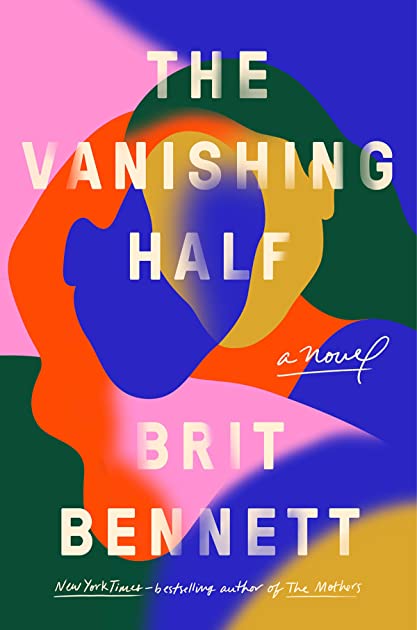
Upon its release, The Vanishing Half saw an incredible amount of critical praise, all of which was wholly deserved, and immediately cemented it as a true modern classic of American literature.
A novel of immense hype matched only by its scope of content and theme. The Vanishing Half tells two parallel stories of twin sisters who grow up to be very different women. Born into a Black community in the deep south, twin sisters Stella and Desiree leave town at the age of sixteen.
After spending a little time in New Orleans, one moves to DC and “becomes” Black, while the other ends up in the white suburbs of California and “becomes” white.
In a deeply literary way, The Vanishing Half examines what it means to perform Blackness and whiteness in a societal and cultural sense, beyond just skin colour.
The Vanishing Half chronicles the choices and life events of these sisters, as well as those of their children as we move through the second half of the 20th Century.
It considers the relationships between place, race, and class, as well as how our relationships are defined by these seemingly immovable things. Spanning decades, this is a multi-generational novel that makes clear the visible yet ignored racial, political, and class divides of modern America.
A masterpiece of Black American fiction and one of the best modern classic books you’ll ever read.
Buy a copy of The Vanishing Half here!
Tokyo Ueno Station by Yu Miri
Translated from the Japanese by Morgan Giles
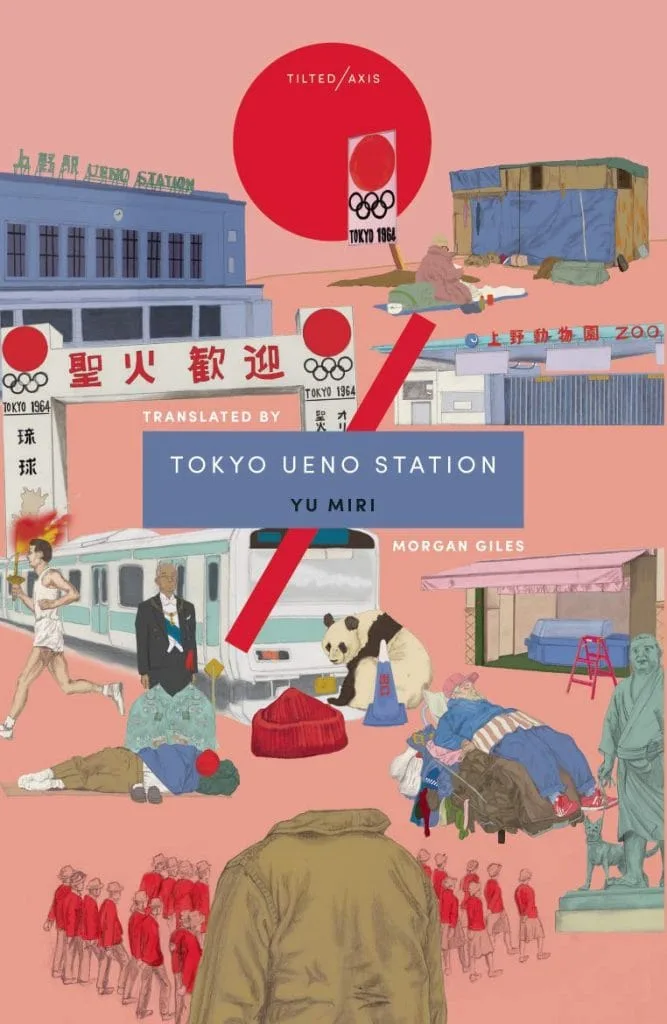
Yu Miri was born in Japan to Korean parents, and as such is a South Korean citizen and occasional recipient of racist bias and abuse in Japan. Despite this, she has had a phenomenally successful career in Japan as both a playwright and a writer of prose.
Although born in Yokohama, Japan’s second largest city, she now lives in a small town in Fukushima, close to the Fukushima Daiichi nuclear power plant which suffered a meltdown following the 2011 Tohoku earthquake and tsunami which claimed thousands of lives.
Her novel Tokyo Ueno Station is a boldly raw and angry literary novel about class disparity and social injustice. Kazu, Tokyo Ueno Station‘s protagonist, was born in the same year as Japan’s emperor, and both men’s sons were born on the same day.
While the emperor was born into the height of privilege, Kazu was born in rural Fukushima, a place that would later be ravaged by destruction in 2011.
While the emperor’s son would go on to lead a healthy life, Kazu’s son’s life would be cut short, and Kazu himself would live out his final days as one of the many homeless barely surviving in a village of tents in Tokyo’s Ueno Park.
A socialist novel about the unfairness of social standings and class divides, and one of the most outstanding modern classic books to read right now.
A novel that asks the reader to ponder just how fair it is that the time, place, and financial situation we happen to be randomly born into determines everything we will become.
Buy a copy of Tokyo Ueno Station here!
All The Light We Cannot See by Anthony Doerr
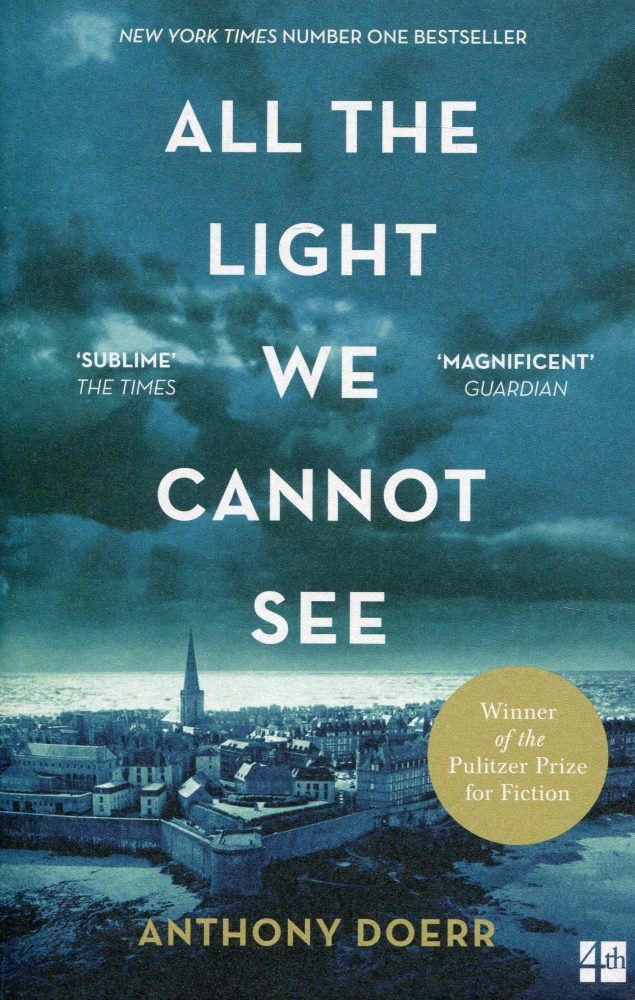
Carnegie Medal and Pulitzer Prize-winning novel All The Light We Cannot See has become one of the giants of American literature in the 21st Century, making it one of the best modern classic books we have.
Set against the backdrop of war-ravaged France, All The Light We Cannot See tells the story of Marie-Laure, a blind French woman and the path that leads her to the orphaned Werner, a member of the Hitler Youth.
The glue that holds this WW2 novel together is its lovable cast of characters, including Marie-Laure’s father, a miniaturist and keeper-of-keys at the Museum of Natural History.
The relationship between him and his daughter is a deeply moving one, as is the story of young Werner, who witnesses the effects of Nazism from the inside, and from a young age.
All The Light We Cannot See is, inarguably, one of the most powerful, moving, and satisfying American novels of this century so far, and one of the best books on World War 2, without question.
Buy a copy of All The Light We Cannot See here!
Pachinko by Min Jin Lee
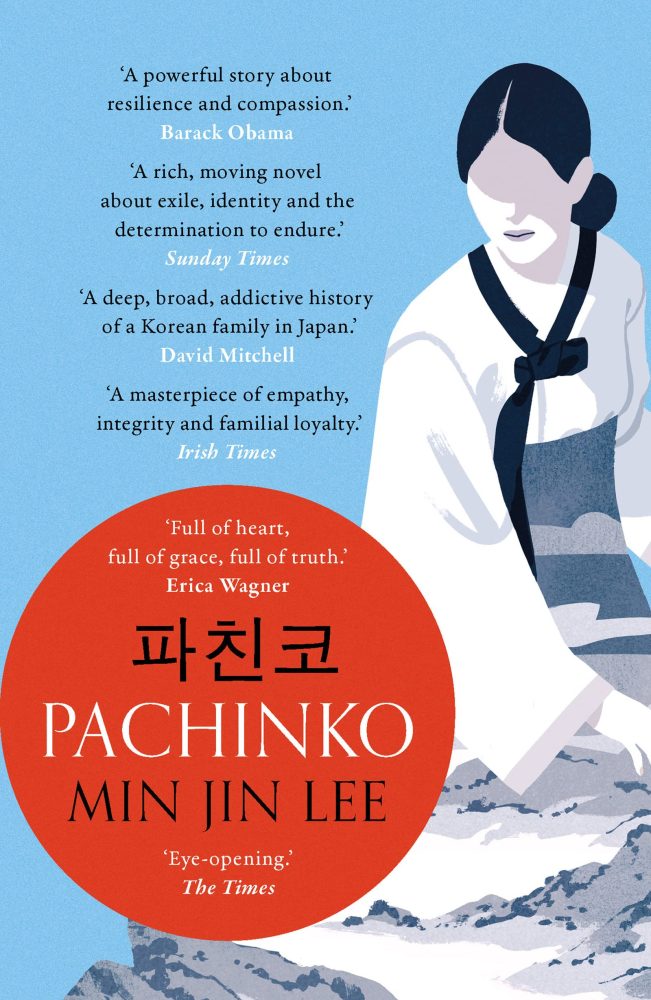
Min Jin Lee’s Pachinko is a sincerely beloved novel; an epic family saga that takes the reader on a soulful journey through early 20th century Korea and Japan, and which has quickly become a true modern classic of literature.
Four generations of a Korean family take us through their lives in the midst of the tragic and tumultuous annexation of Korea by the Japanese Empire.
Today in post-empire Japan, many zainichi Koreans continue to live, descended from those Koreans who were forced to move to Japan in the years leading up to World War II.
This fact gives Pachinko a sense of weight; its characters and events, what they went through, the tragedies they experienced, it all continues to reverberate into the modern day.
We begin with Sunja, a young and poor Korean who is pulled mercilessly in different directions by the actions and choices of men.
As we read, we travel from rural, coastal Korea to both the highest and lowest parts of Japanese society. Pachinko is an incredible family saga and one of the best modern classic books of our time.
The Underground Railroad by Colson Whitehead
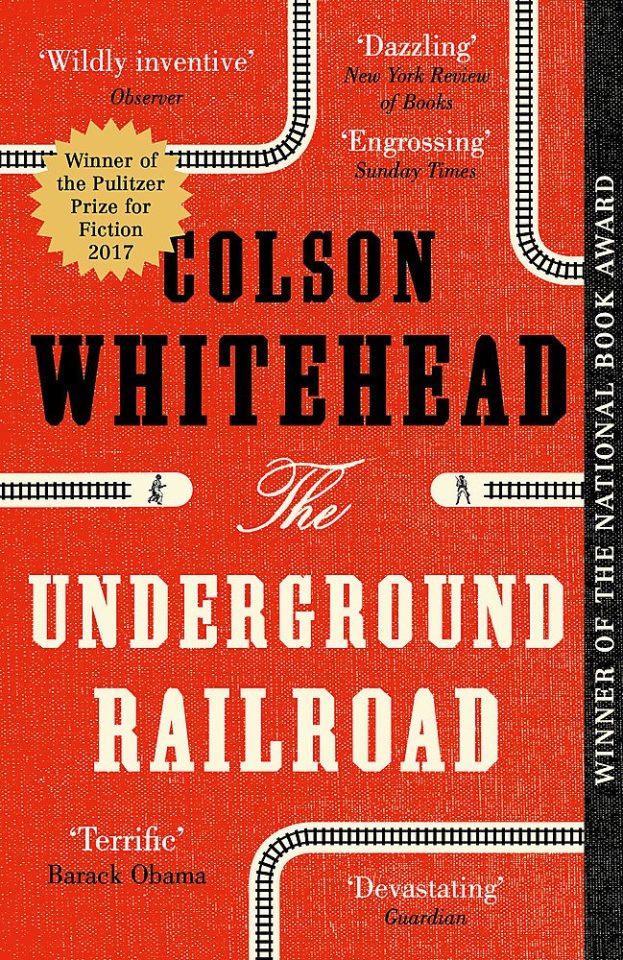
Colson Whitehead’s masterpiece The Underground Railroad won the Pulitzer Prize, the National Book Award, and the Arthur C. Clarke Award.
This is an amazing piece of American historical fiction that reimagines the titular Underground Railroad as an actual underground network of train lines.
We follow Cora, a slave in the 19th century American South, who escapes her Georgia plantation with the help of fellow slave Caesar.
The pair hunt for the Underground Railroad and encounter both friends and enemies along the way. They commit desperate deeds to ensure their survival.
This is an incredible work of American fiction that has since cemented Colson Whitehead as one of the great American writers of the 21st century, and this one of the best modern classic books, period.
Buy a copy of The Underground Railroad here!
Fingersmith by Sarah Waters
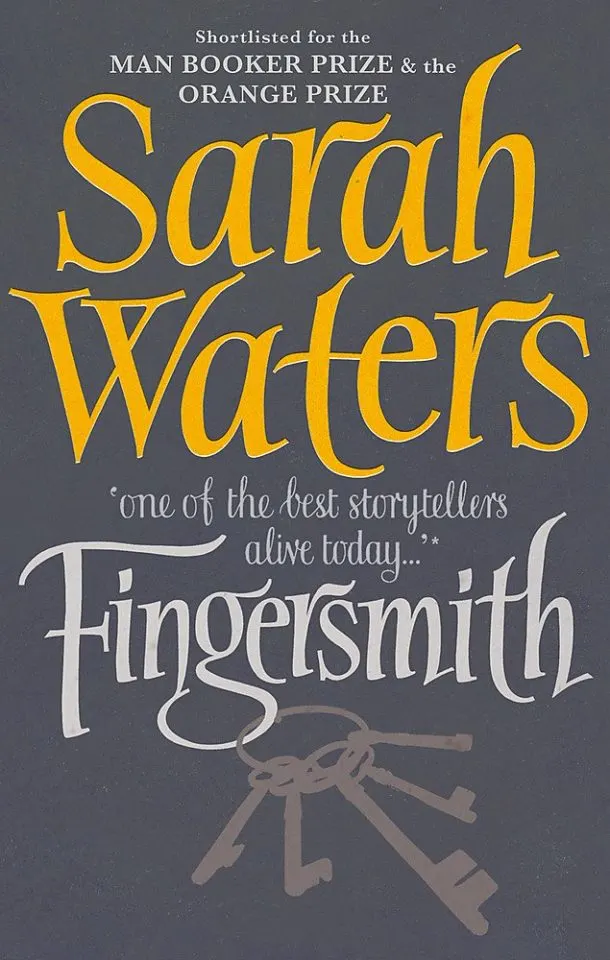
Sarah Waters has made a name for herself as an author of queer historical romance novels, mostly set in or near the 19th Century. And the beefy Fingersmith is, by far, her most popular and finest work.
Serving as the inspiration for Korean film director Park Chan-wook’s masterpiece The Handmaiden, Fingersmith is a work of absolute beauty. One of the most iconic historical novels in existence.
The titular fingersmith is a London thief named Sue; an orphan and a survivor raised to steal from the rich. When her enigmatic associate, known to everyone as Gentleman, comes to her with a job, she gladly accepts.
The job takes Sue to a country estate, wherein she must play the role of maid to a naive young heiress while Gentleman slowly begins to court her for a fortune that he will eventually split with Sue.
Unfortunately, Sue begins to fall in love with the rich heiress, and what follows is an incredible series of impossible-to-predict twists and turns.
Fingersmith is one of the most gorgeously-written historical novels ever published. Poetic prose dances on the page. And it is a celebration of raw, queer love, to boot. A masterpiece amongst modern classic novels.
Buy a copy of Fingersmith here!
The Wind That Lays Waste by Selva Almada
Translated from the Spanish by Chris Andrews
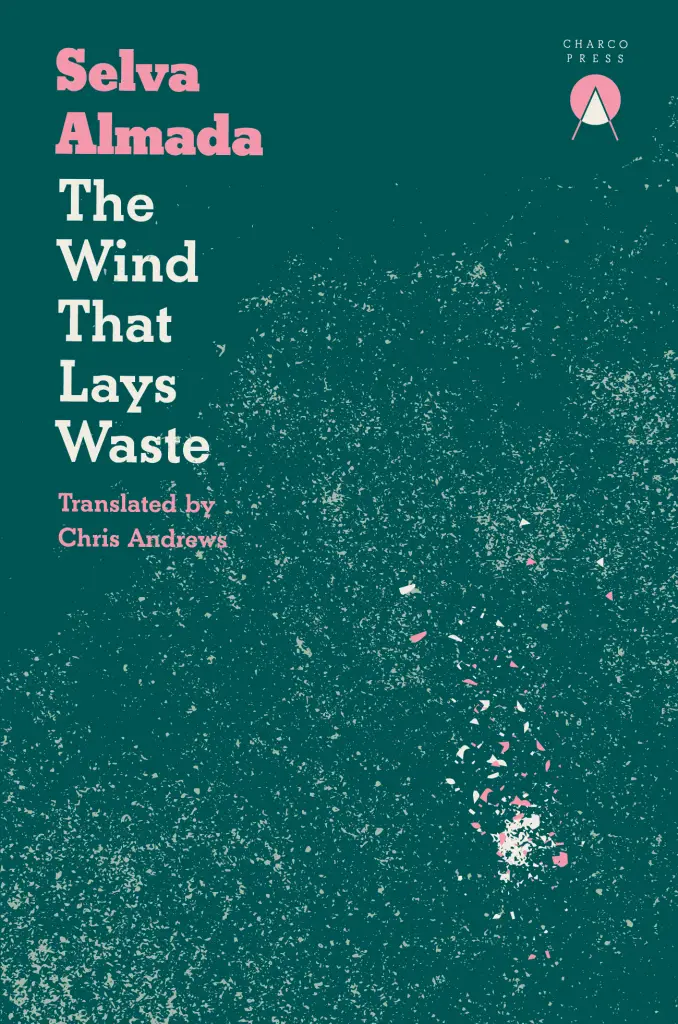
Argentinian author Selva Almada has written several great works of feminist literature, and The Wind That Lays Waste is her finest achievement.
Set in the rugged wilds of the Argentinian countryside, this novella presents us with a travelling preacher and his daughter, whose car breaks down and is fixed by a lonely roadside mechanic and his apprentice.
While the car is being fixed, the preacher and his daughter stay with the mechanic, and the two men begin to discuss religion, with the mechanic being an immovable atheist and the preacher being, well, a preacher.
In a style and setup reminiscent of Waiting for Godot, the isolated story escalated gradually, with the younger characters each intrigued by the other’s perspective and way of living.
This is the story of bullheaded men coming to blows over their beliefs, as the rest of us watch on and the world falls away around them. An incredible piece of Argentinian fiction and one of the best modern classics you’ll ever read.
Buy a copy of The Wind That Lays Waste here!
American Gods by Neil Gaiman
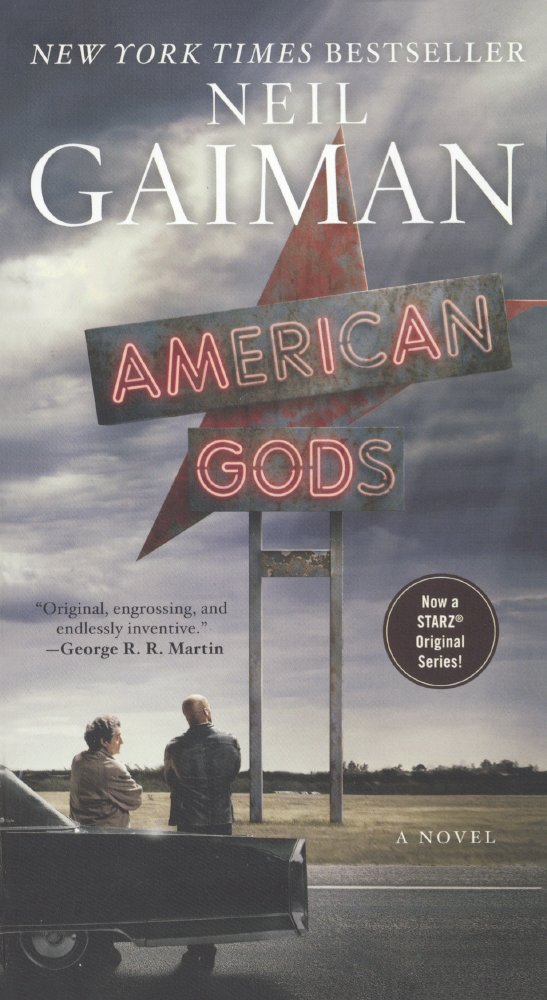
Across his celebrated career as a writer of novels, children’s books, comics, and screenplays, Neil Gaiman has reshaped the world of fiction writing more than once. And American Gods remains his finest work. A true masterpiece amongst modern classic books.
American Gods follows Shadow, a man newly released from prison at the same time that his wife is murdered. Recruited by a man known as Wednesday, Shadow takes an odd road trip across the US, seeing all the stranger sights along the way.
Dripping with a rich and detailed atmosphere, this novel provides readers with a journey that absorbs them completely. You live Shadow’s journey wholly and completely, and what a thrill ride it is.
American Gods also has a truly masterful central concept. Gods need people to invent them, worship them, and dedicate their lives to them. Without people, gods disappear.
So, what happened when Europeans moved to the New World? Some brought their gods with them while others got abandoned. There are also new gods; new things to worship: TV and internet and microwaves. There is a war brewing between the old gods and the new, and Shadow is caught in the middle.
This is a fascinating and gripping premise that makes for a perfect novel. American Gods is Neil Gaiman’s best work, and one of the great modern classic novels.
Buy a copy of American Gods here!
Human Acts by Han Kang
Translated from the Korean by Deborah Smith
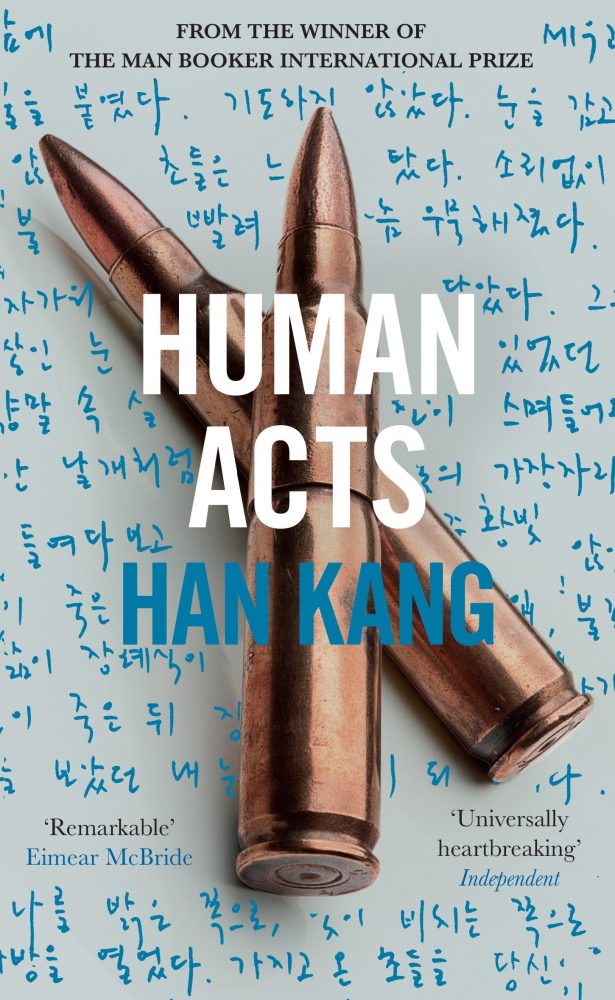
Han Kang, the legendary Korean author, was celebrated the world over for her daring and subversive novel The Vegetarian, which won the International Booker Prize in 2017. Her subsequent novels The White Book and Greek Lessons have also stolen our hearts.
But it’s her experimental and bleak novel Human Acts, set amidst the Gwangju Uprising of May 1980, that presents her work at its most brazen and difficult.
The Gwangju Uprising was a moment of intense political change, as the people of South Korea rose up against their government’s military dictatorship.
Our protagonist is the dead boy Kang Dong-ho, and this short novel takes us from 1980 to the present day via the people who knew him and the lives they have led.
Feverish and strange, but also raw and heart-wrenching, Human Acts stands alone amongst other best modern classics of this century.
Buy a copy of Human Acts here!
The Broken Earth Series by N.K. Jemisin
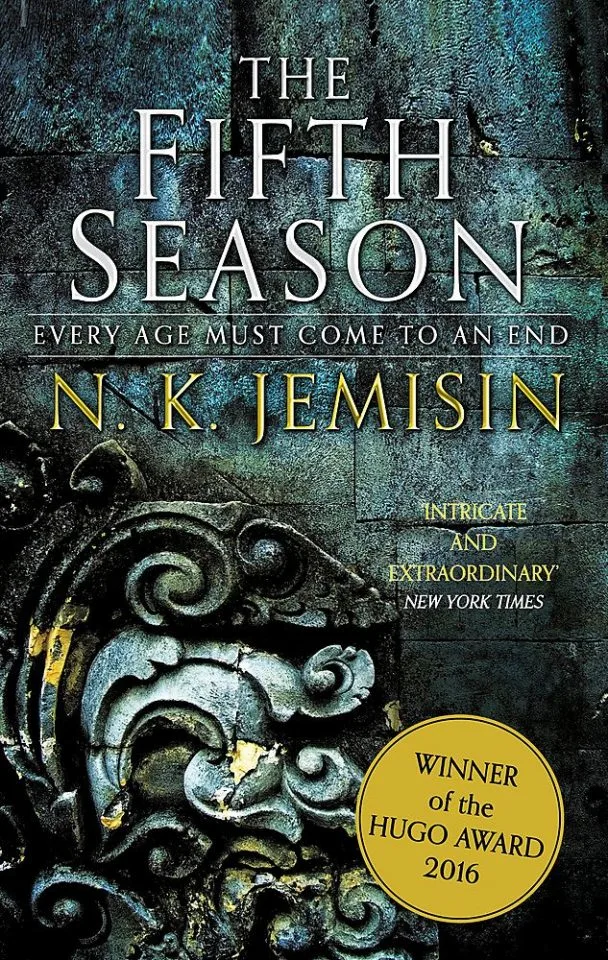
This staggering trilogy of epic fantasy books by American author N.K. Jemisin represents a vital and necessary turning point in fantasy fiction.
These fantasy novels, narratively and conceptually, are unlike anything that exists in the realms of fantasy and science fiction literature. Their breadth and scope is exceptional.
For proof of the impact these books had upon their release, every single book in the trilogy took home the Hugo Award for Best Novel in its respective year, making it the only trilogy to ever accomplish this.
The first novel in this trilogy of best fantasy books, The Fifth Season, follows three separate protagonists, all living in slightly different times on a massive continent called the Stillness.
Essun is a middle-aged mother who sets out on a journey of revenge after she comes home to find that her husband has killed their son and taken their daughter away.
Essun herself is secretly able to manipulate the earth itself; this is a skill that a small percentage of people — known as orogenes — possess.
The second protagonist is Damaya, a young orogene whose parents have organised to be removed from their home and put into the hands of an organisation — known as the Fulcrum — that can train and weaponise her.
And the third protagonist, Syenite, is a member of the Fulcrum who has been sent out on a mission with the world’s most powerful orogene.
The worldbuilding and character writing of this phenomenal trilogy is what sets it so far apart from all other fantasy books, making them some of the best fantasy books ever written.
At the risk of sounding hyperbolic, nothing else in the world of fantasy has managed to marry intimate character moulding with political and social allegories and ingenious worldbuilding quite like the Broken Earth trilogy.
For these reasons, The Fifth Season is easily one of the biggest and best modern classic books we have; a book that has reshaped the entire landscape of fantasy fiction.
Flights by Olga Tokarczuk
Translated from the Polish by Jennifer Croft
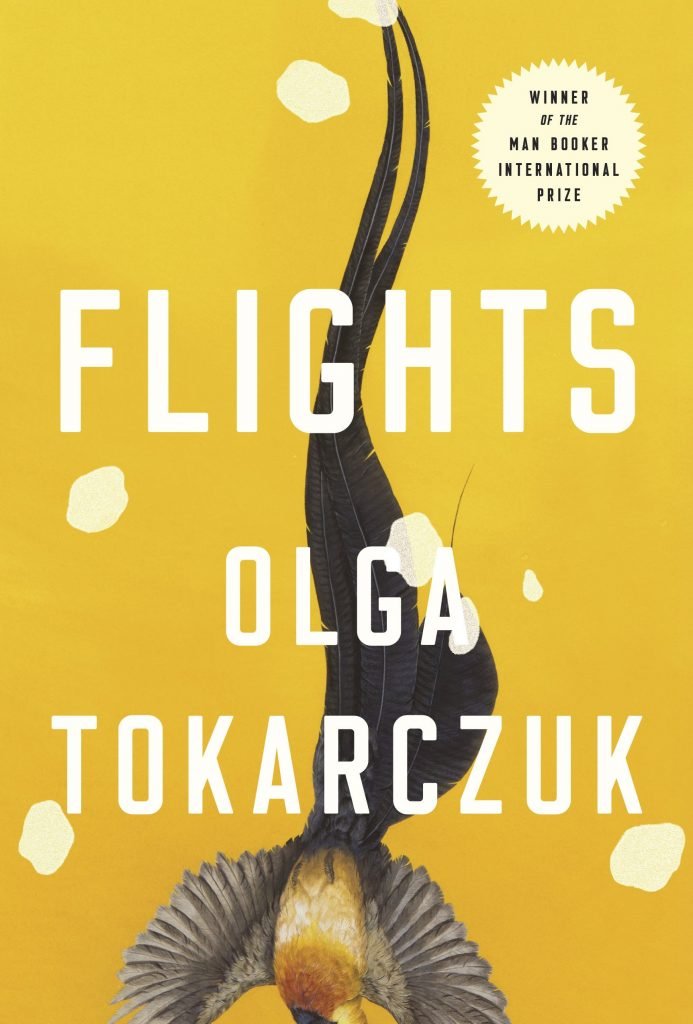
Olga Tokarczuk is a Nobel Prize-winning Polish author, and writer of some of the best modern classic books of this (or any) century. A true genius and an unparalleled visionary writer.
Her novel, Flights, catapulted her into the public eye of the English-speaking world when it was published by indie press Fitzcarraldo Editions in 2018.
Flights is both a fictional travelogue that philosophically muses on time, movement, and inertia, and an historical examination of life and the human body.
This is a book that blends history and philosophy, fact and fiction, memory and essay. Much of it is spent in stories of migration, of nomadism, of wandering.
Other stories take us back through time to strange occurrences, such as the story of how Chopin’s heart was transported after his death. There is nothing in the world like Flights, like the writings of Olga Tokarczuk.
If We Were Villains by M.L. Rio
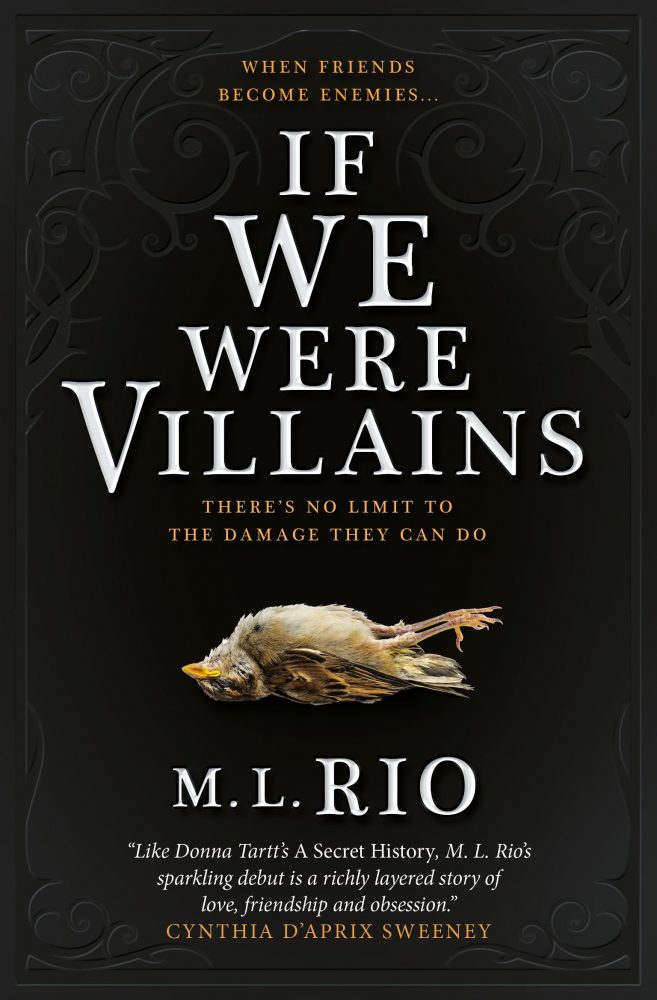
When Oliver Marks is released from a decade of prison (for a murder he may not have even committed), he is immediately greeted by the detective who got him convicted.
Now, the detective wants Marks’ truth from ten years back. Marks is one of seven college students deeply entrenched in a love of The Bard.
They are a small society of Shakespeare fanatics who live and breathe his works. They are also darkly obsessed with one another, shutting out the rest of the world.
When emotions run this high, however, it only takes a small glitch to throw their dynamic into catastrophe and, eventually, even death.
The experience of reading If We Were Orphans will undeniably be enhanced for anyone with their own love for the works of Shakespeare. It’s not required, but it certainly helps.
A Shakespeare-inspired murder-mystery dark academia novel that has so quickly defined itself as one of the best modern classic books we have.
Buy a copy of If We Were Villains here!
Small Things Like These by Claire Keegan
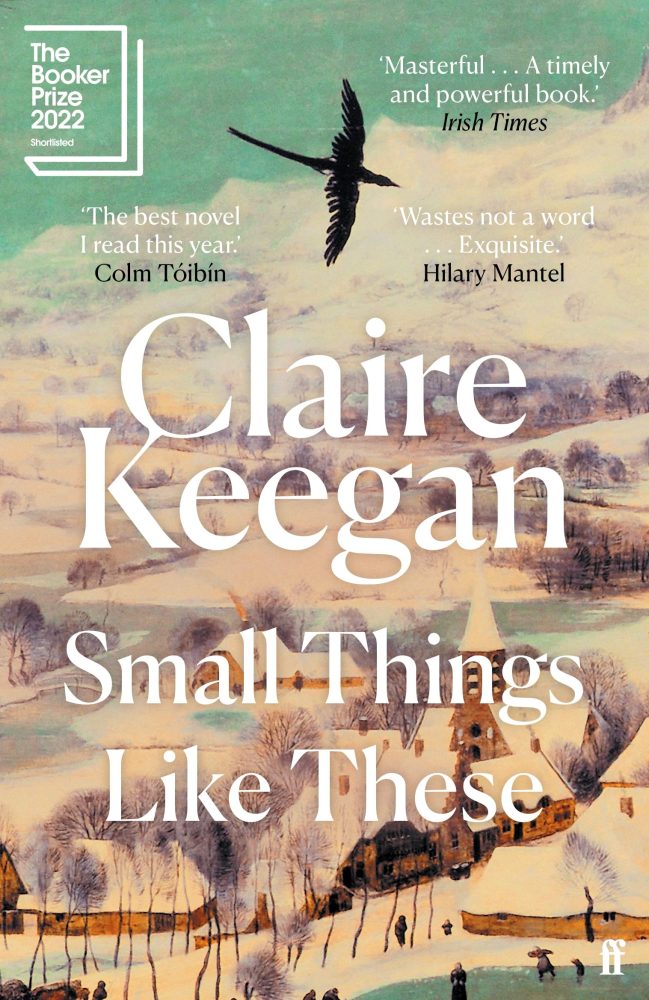
Written by one of the most talented and insightful literary authors of today and published in 2022, Small Things Like These is a modern classic that will go down in history as one of the great novels of our time.
At its heart, this is a novel about the everyday acts of goodness performed by honest people versus the twisted, monstrous, ironically sinful behaviour of organised religion.
It’s 1985 and we follow our protagonist, father of five Bill Furlough, and he works and visits his neighbours and goes shopping in the days leading up to Christmas.
As we get to know his family and his community, we are also shown glimpses of Bill’s childhood, and how his single mother was saved from a difficult life by the simple acts of kindness by those around her.
Bill has seen kindness, and is proof that it is infectious. Against the grain of his community, who are complicit in the sins of the church, he does what is right and considers it his moral duty as a living human. As he does so, he exposes the harmful, damaging actions of the church.
Small but powerful, this literary Irish novel is a work of magic, and one of the best modern classic books of our time.
Buy a copy of Small Things Like These here!
Lincoln in the Bardo by George Saunders
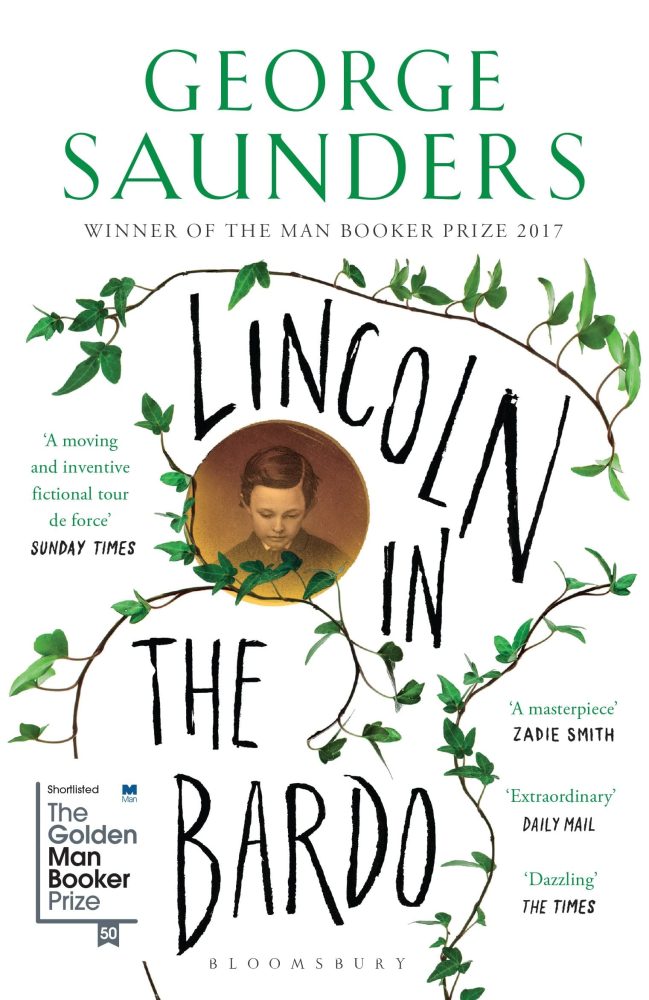
George Saunders is celebrated for his craft as a writer of short stories, but his debut novel, Lincoln in the Bardo, immediately struck a chord with readers and went on to win the Booker Prize.
A bizarre and charming piece of historical fiction which I have read multiple times, Lincoln in the Bardo follows the son of Abraham Lincoln, William, as he is caught in a space between life and death.
This space, the titular bardo, is part of buddhist belief, and here is used by Saunders to explore the grief of Lincoln, and as a means of flexing the author’s craft as a storyteller.
As we follow young William, we meet other ghosts caught in the bardo whom he befriends, and we also see glimpses of the world of the living, and how Honest Abe is coping with the loss of his son.
This is a beautiful and delightfully unique piece of contemporary fiction that is unlike anything else you’ll ever read. Surreal but not off-putting, this is one you’ll never forget, and one that stands strong amongst the best modern classic books of this century.
Buy a copy of Lincoln in the Bardo here!
Gone Girl by Gillian Flynn
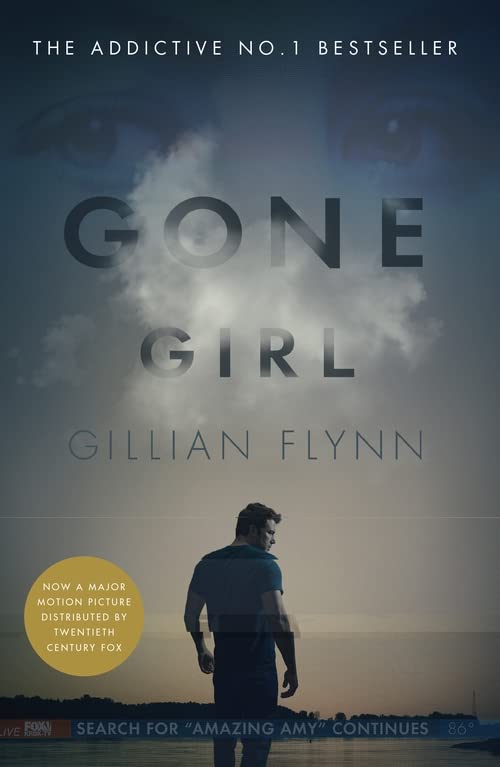
Where thrillers are concerned, Gone Girl might be the most famous, successful, and celebrated novel of this century so far. This is a book that has redefined the thriller genre. What The Fifth Season (above) did for fantasy, Gone Girl has done for thrillers. A truly exceptional modern classic novel.
The fame this novel saw was hugely bolstered by the massive success of David Fincher’s excellent film adaptation; perfectly paced, with an immaculate tone and incredible performances.
Fincher really knows how to direct a thriller, and you couldn’t find a better pairing than his directorial eye and Flynn’s original story.
Gone Girl focusses around the disappearance of Amy Dunn, a woman who vanished on her fifth wedding anniversary.
All eyes are on her husband, Nick. Public consensus is that he was involved in her disappearance, but how? What role did he play? Where is she? Is she even alive?
This is a novel of two halves, with an enormous midpoint twist separating it into two distinct narratives.
In the first half, we follow a pretty standard investigation, with public interest in the case gaining steady momentum, and Nick in the spotlight. But that twist changes and refocusses everything we thought we knew.
Few thrillers nail their execution and pacing as well as Gone Girl does, making it a real masterpiece of the genre, and one of the best modern classic books you’ll ever read.

